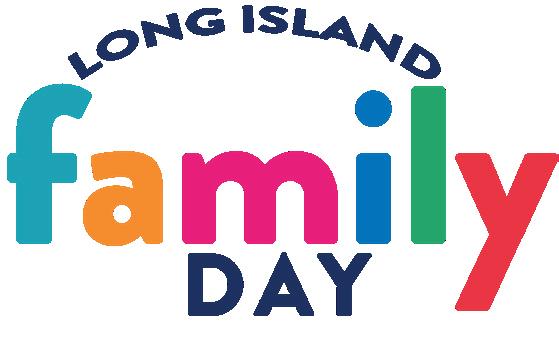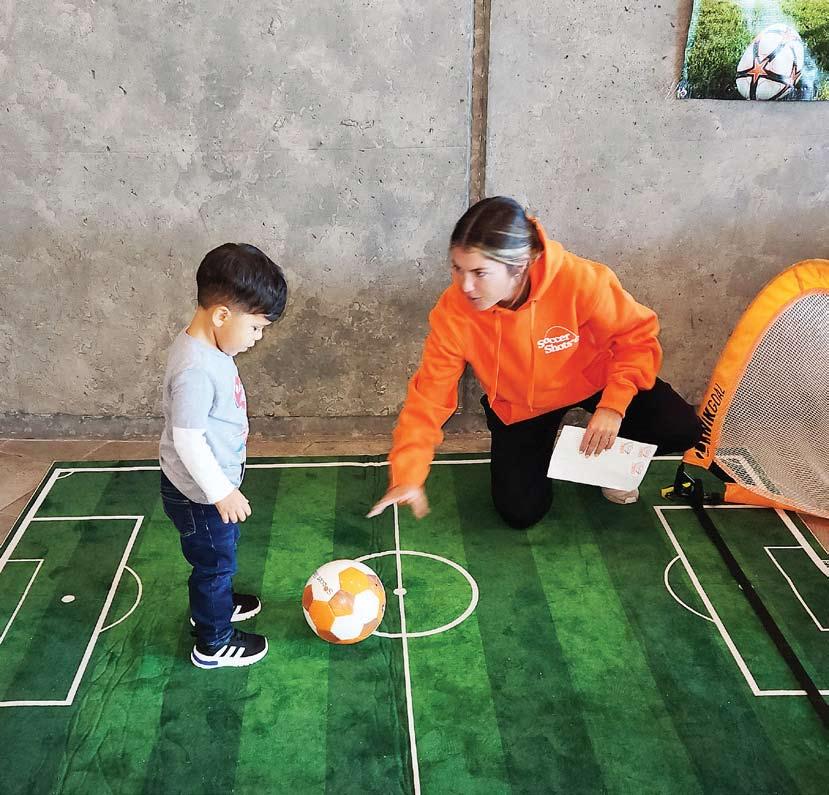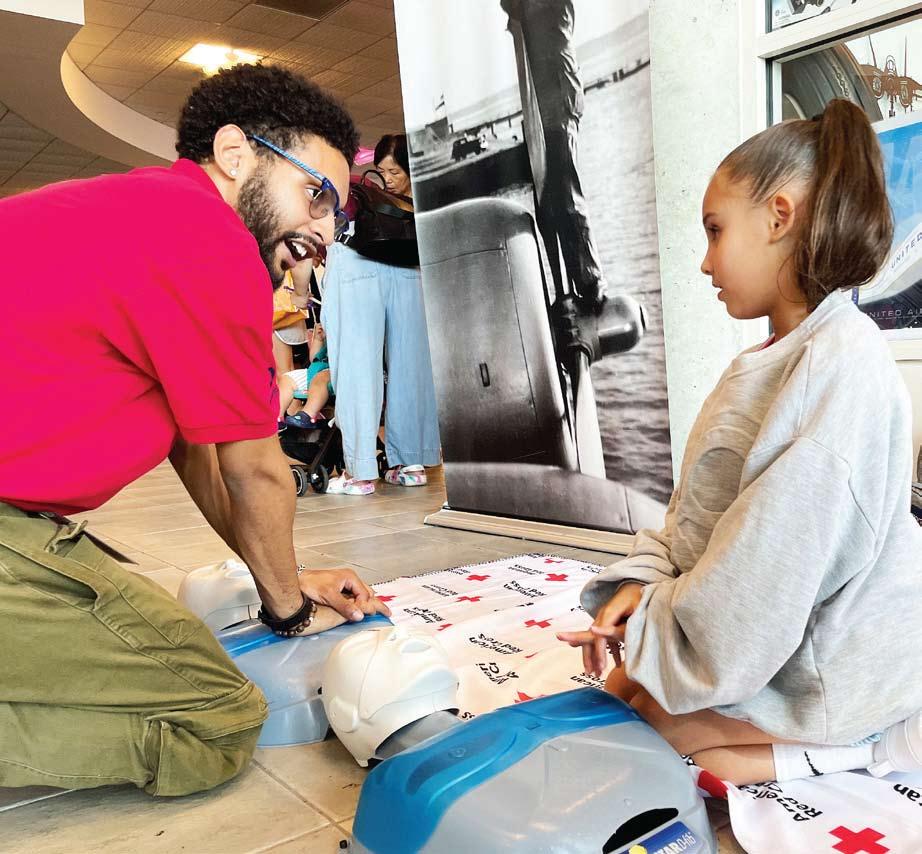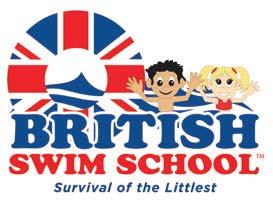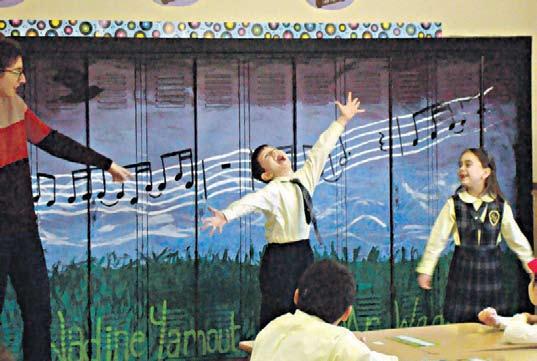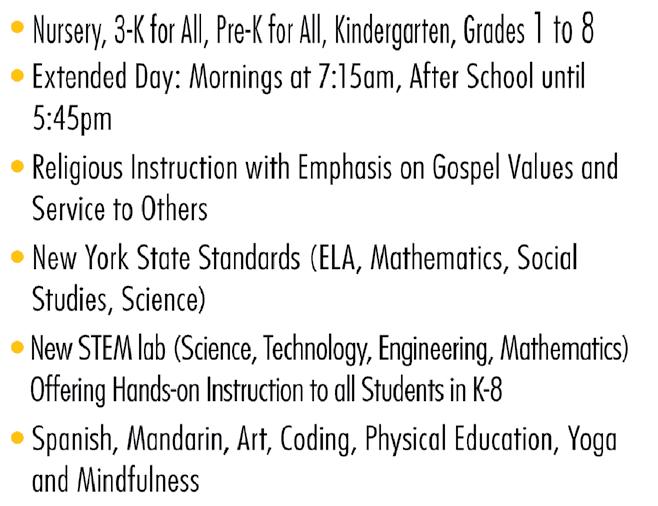
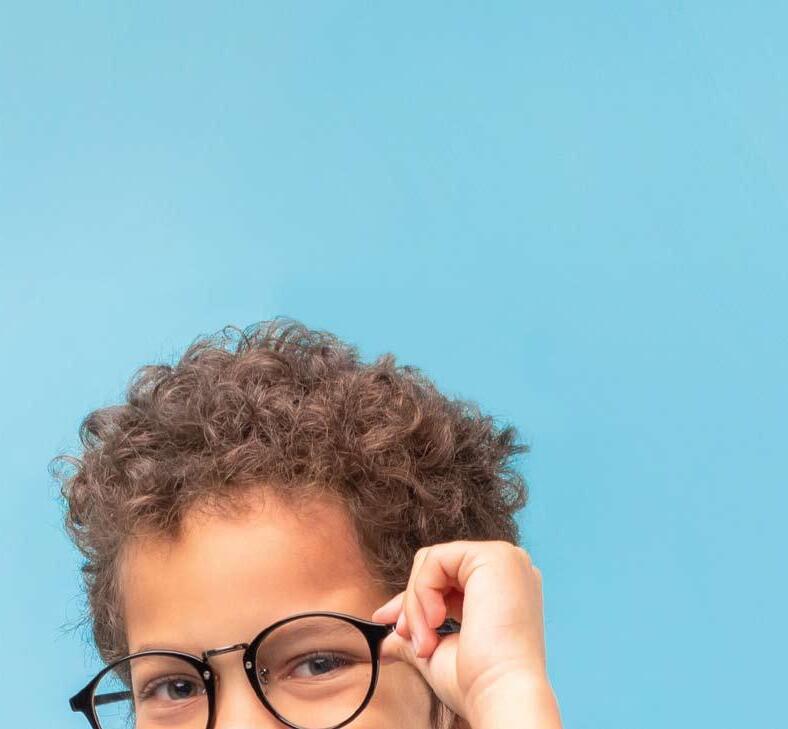

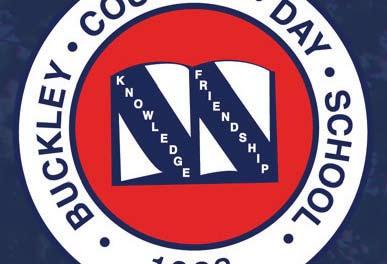







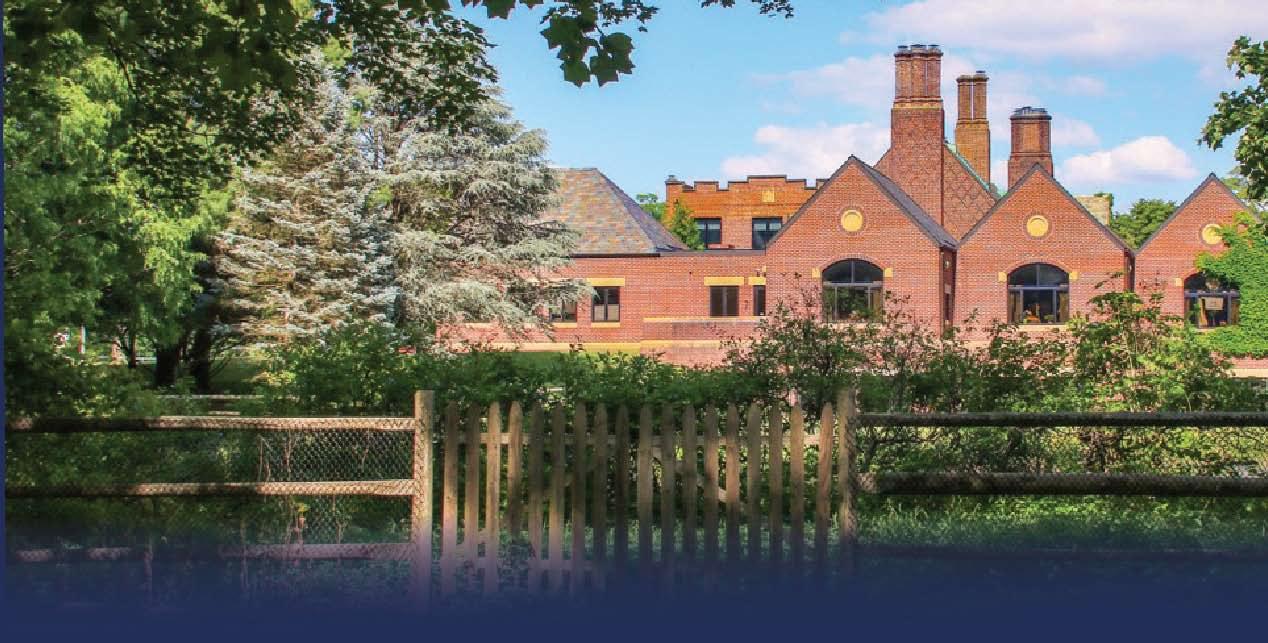
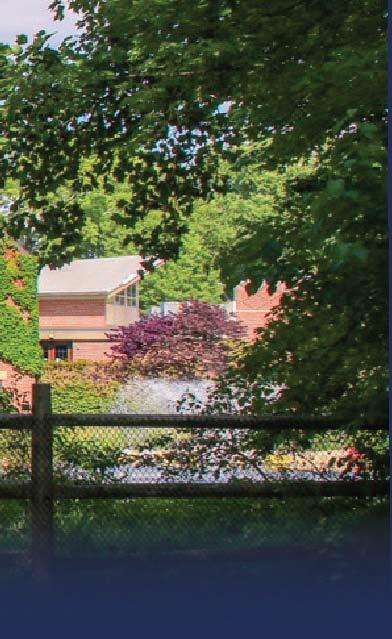
Buckley Country Day School is committed to elementary education. BCDS graduates are well-rounded, articulate, resilient and morally responsible individuals, prepared to meet the challenges of a demanding secondary education and continue on the path of lifelong learning.
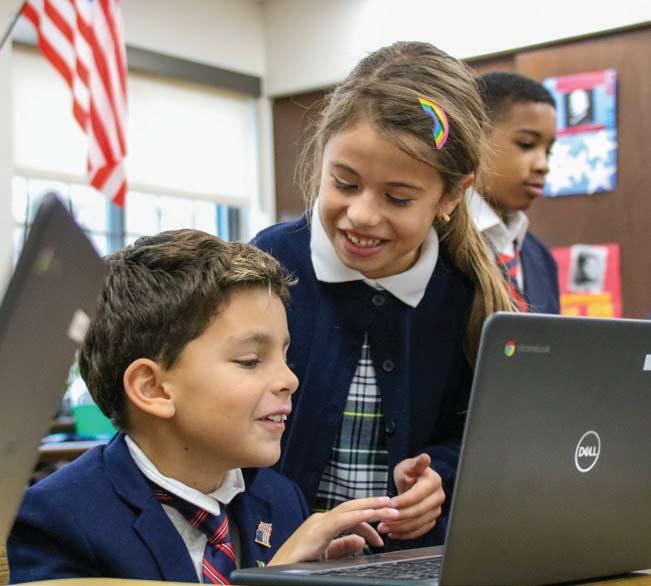




“

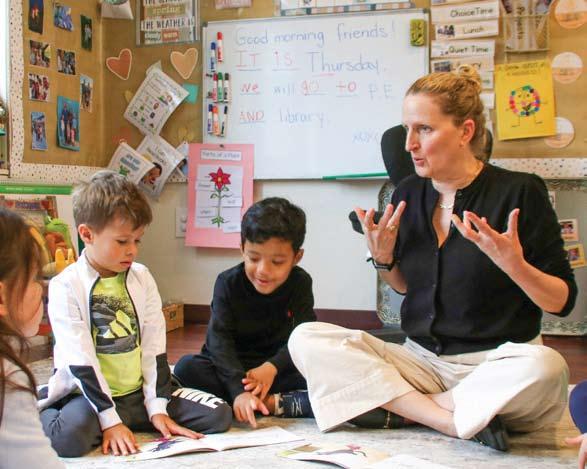







firsthand
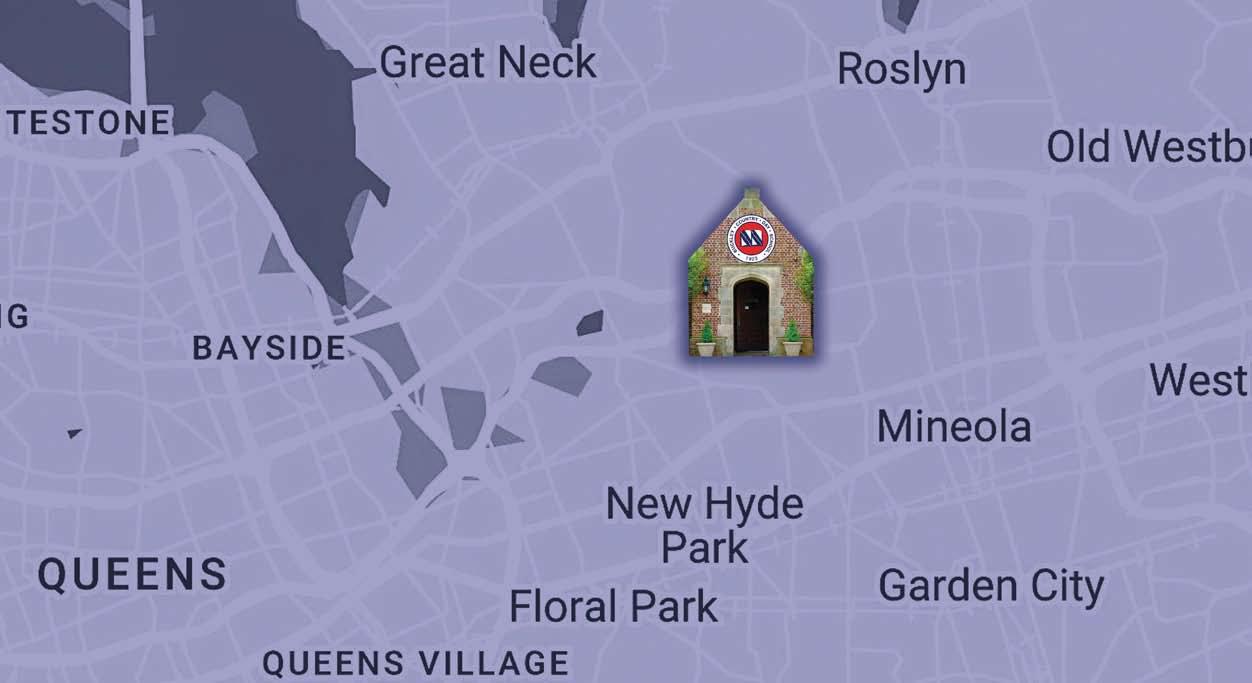

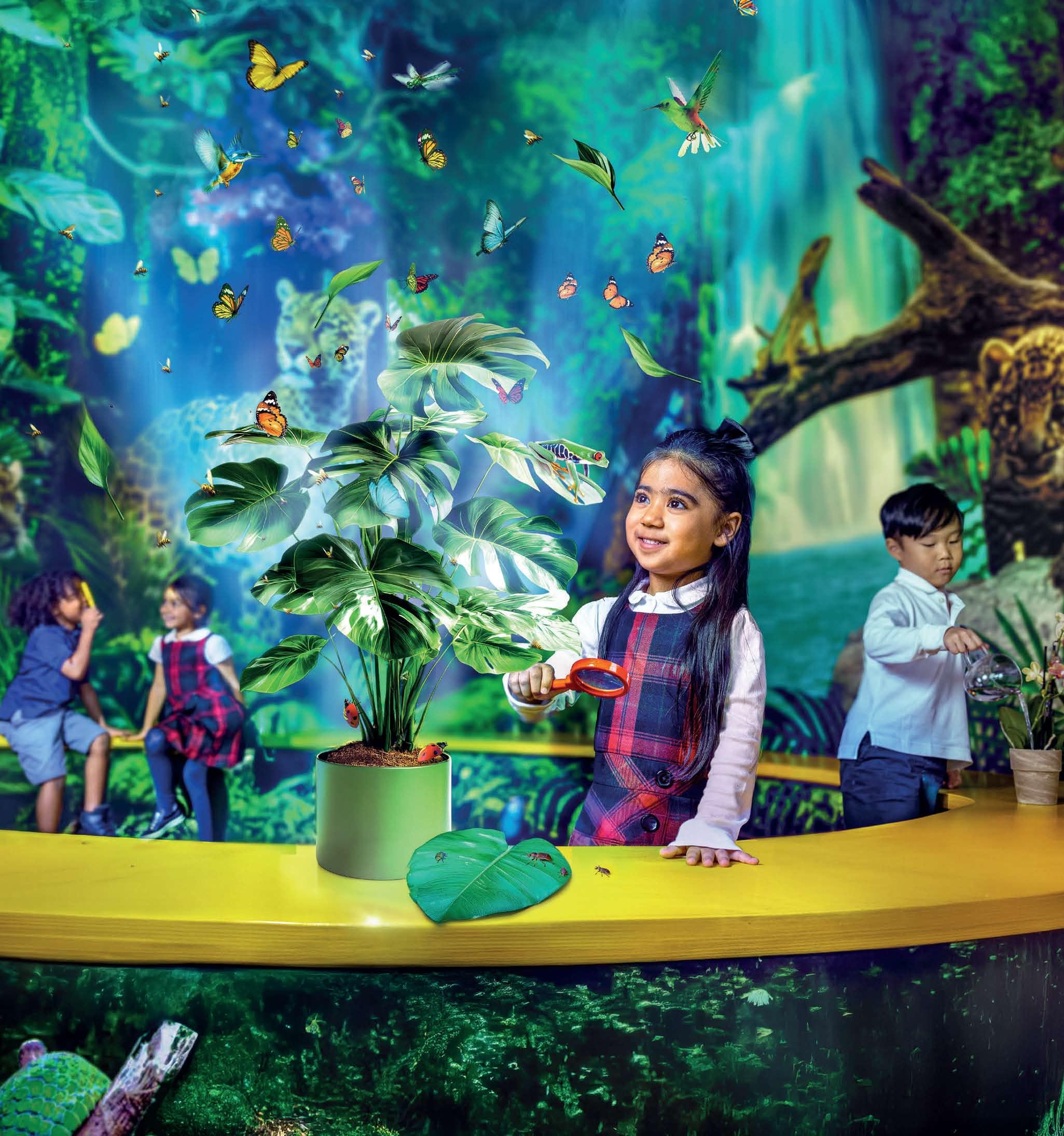

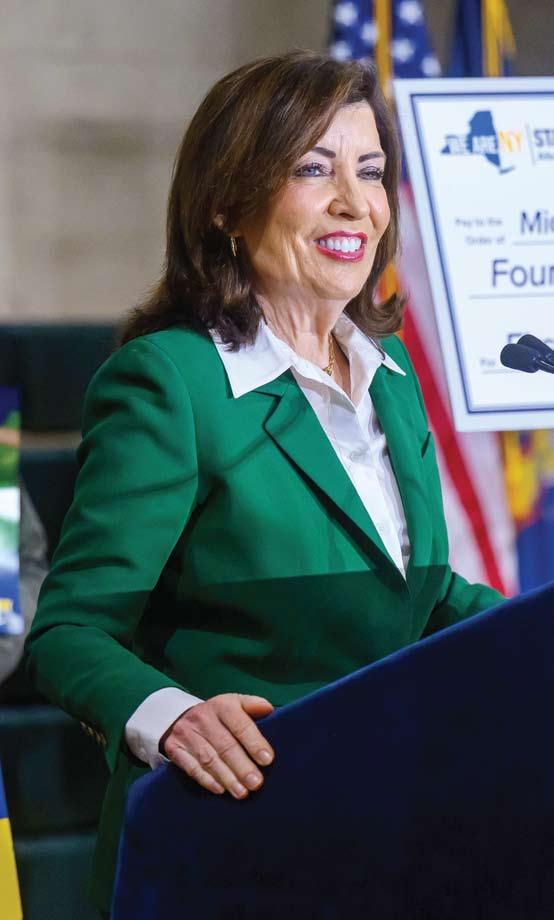
8 | education
Set up a home study spot that will keep kids centered, calm, and ready to learn.
26 | fighting for families
An inside look at the Governor’s plans for New York families.
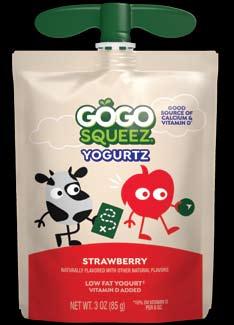
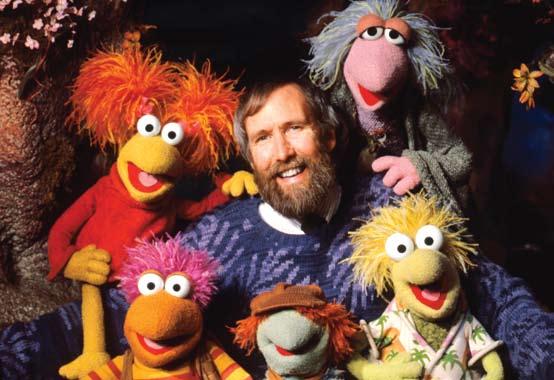

sToRiEs & columns
6 | editor’s n ote Back-to-school mode 12 | School Snacks
Lunchbox picks your kid will eat!
30 | a b allad for b ubby A musical ode to family and legacy
16 | find your fit
Choosing an after-school program that fits your kid’s personality
18 | future- proof programs
After-school classes and activities that teach skills that last a lifetime
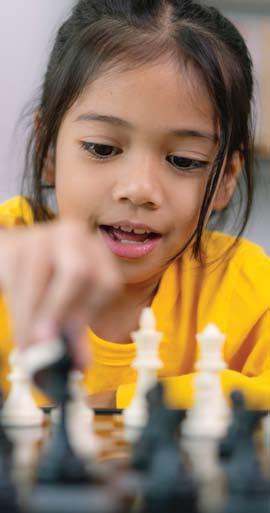
mily F un
28 | c alendar
The best family-friendly events in New York City this September
i RE c To R i E s
20 | after-School programs & activities
| after-School leaders


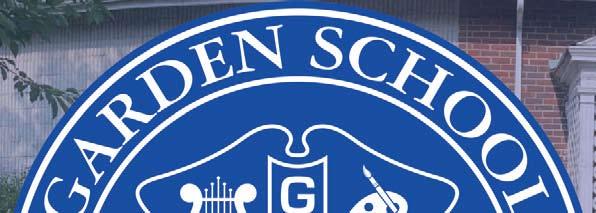



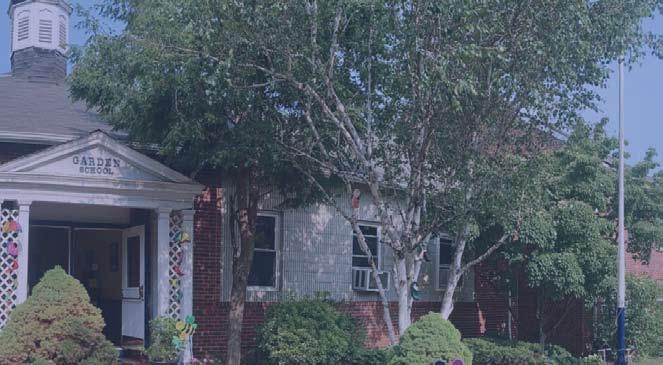


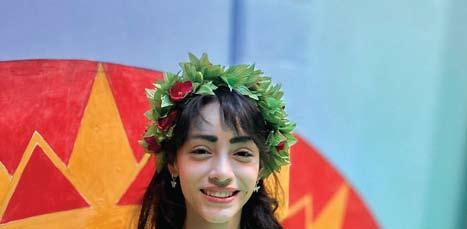
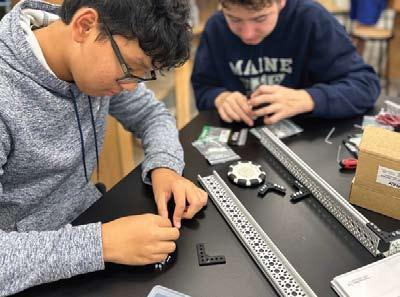




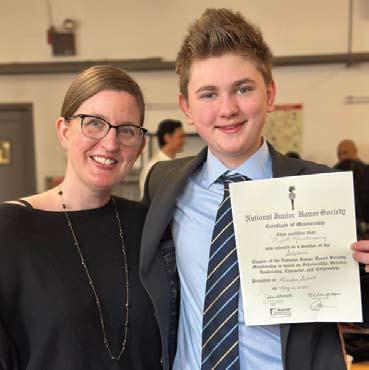
Dear Queens Families,
The start of a new school year in Queens always brings a mix of excitement and adjustment—new school supplies, new teachers, and the return of routines after a summer of late nights and long days outdoors. For families, it’s a season of new beginnings and a chance to set the tone for the year ahead. Whether you’re preparing your preschooler for their very first classroom experience or juggling the return of afterschool activities, September is the month where everything shifts back into motion. In this issue, you’ll find everything you need to kick off the school year with confidence: expert tips for creating a learning space at home, guides to after-school programs that keep kids learning long after the bell ring, and an exclusive conversation
with New York’s Gov. Kathy Hochul, who shares candid thoughts on education, family policies, and what lies ahead for New York parents.
And since summer’s not quite over, we have plenty of ways to enjoy the final golden days of fun with the family. As always, our goal is to provide you with a trusted guide for parenting in the city—whether you’re looking for weekend activities or thoughtful insight on the issues that matter most to families today.
We wish all the children returning to school this month a smooth transition into the school year. Here’s to a new year of routines, opportunities, and discovery!
Happy new (school) year,
Tara
Share your feedback and ideas about family life in New York! Email us at editorial@newyorkfamily.com and tag us at #newyorkfamily
p ubli S her: Clifford Luster
editorial director: Tara Lustberg
aSSociate p ubli S her: Erin Brof
adverti S ing d irector: Stacie Goldberg
d eputy e ditor: Danielle Ramos
aSSociate editor: Náosha Gregg
e vent S manager: Shara Levine
e ditorial aSS i Stant: Alexa Lutter
partner S hip manager S : Lauren Alperin, Lauren Anchin, Joan Bergman, Mary Cassidy, Suzanne Cirigliano, Chris Cunnington, Lori Falco, Shelli Goldberg-Peck, LynnMarie Hanley, Lisa Herlihy, Nicole Miller, Janine Mulé, Nina Spiegelman, Gwen Tomaselli
marketing & Strategy d irector: Rosalia Bobé
marketing & event S coordinator : Ashley Rivera
marketing aSSiStant: Lorens Morris
m edia Sale S aSS i Stant: Ruston Ropac
art d irector: Leah Mitch
web d eveloper: Sylvan Migdal
g raphic d e S igner S :
Arthur Arutyunov, Connie Sulsenti
e ditorial contributor: Mia Salas
conTAc T inFoRm ATion
adverti S ing : (718) 260-4554
Advertising@NewYorkFamily.com circulation: (718) 260-8336
Tina@NewYorkFamily.com
addre SS : New York Family Media/Schneps Media 15 MetroTech Center, Seventh Floor Brooklyn, NY 11201
p re S ident: Victoria Schneps-Yunis ceo : Joshua Schneps coo : Clifford Luster

New York Family is the recipient of 12 Parenting Media Awards in 2024, including General Excellence, as well as several Gold Awards in Editorial and Design for our website, e-newsletters and monthly print publication.



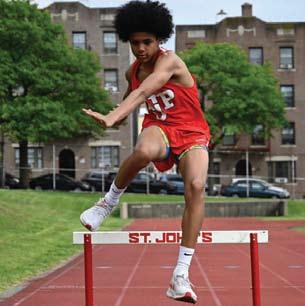
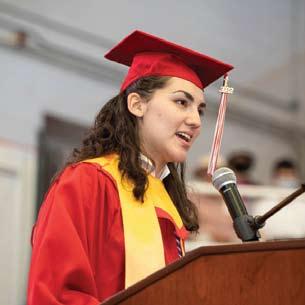



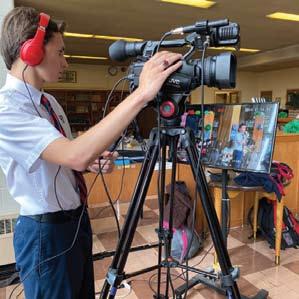






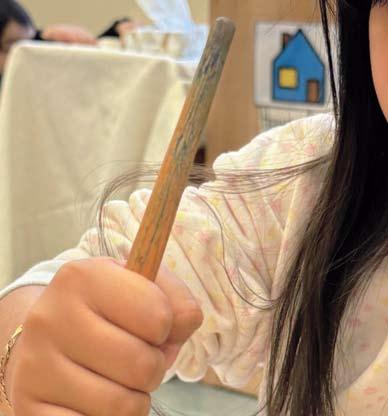


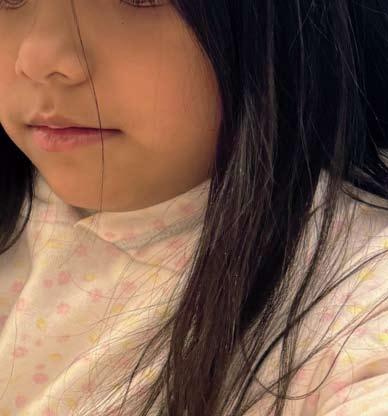







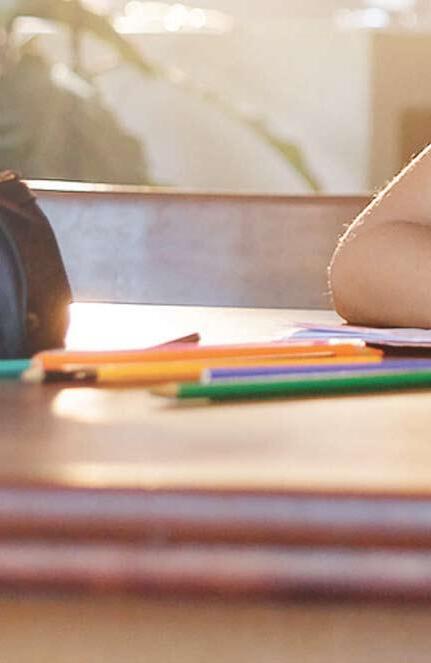
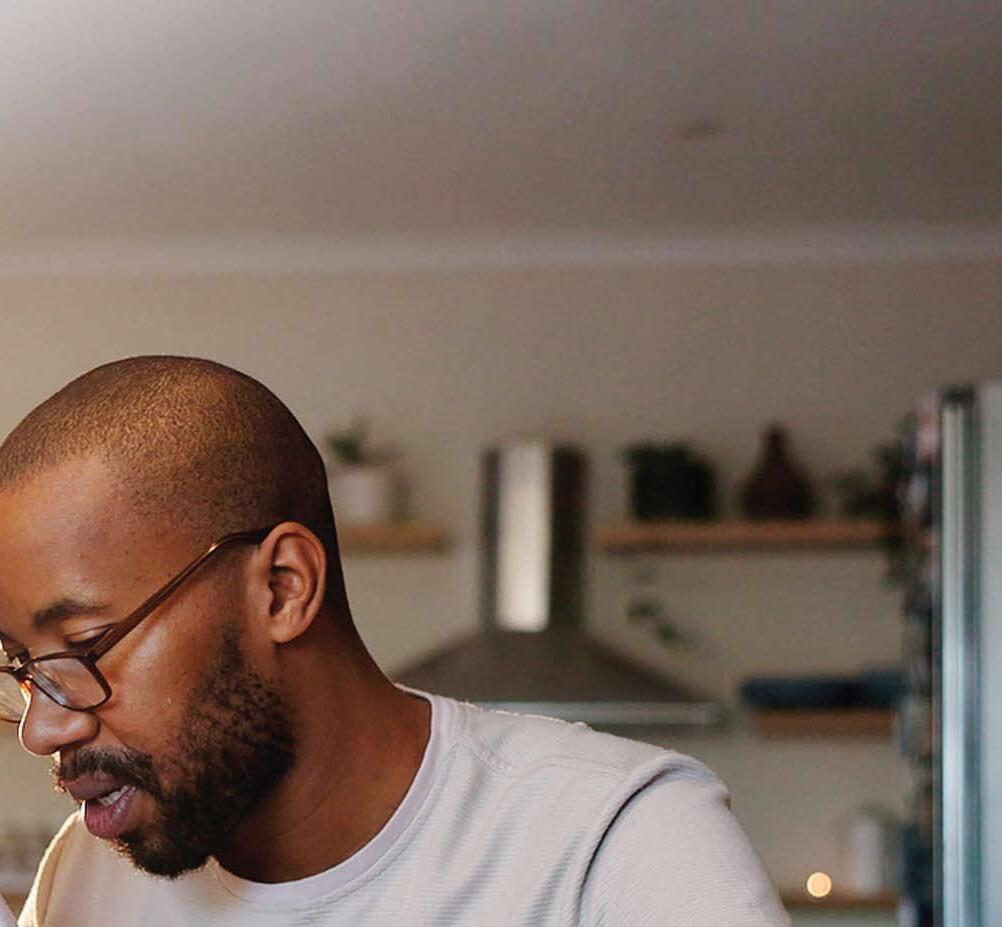
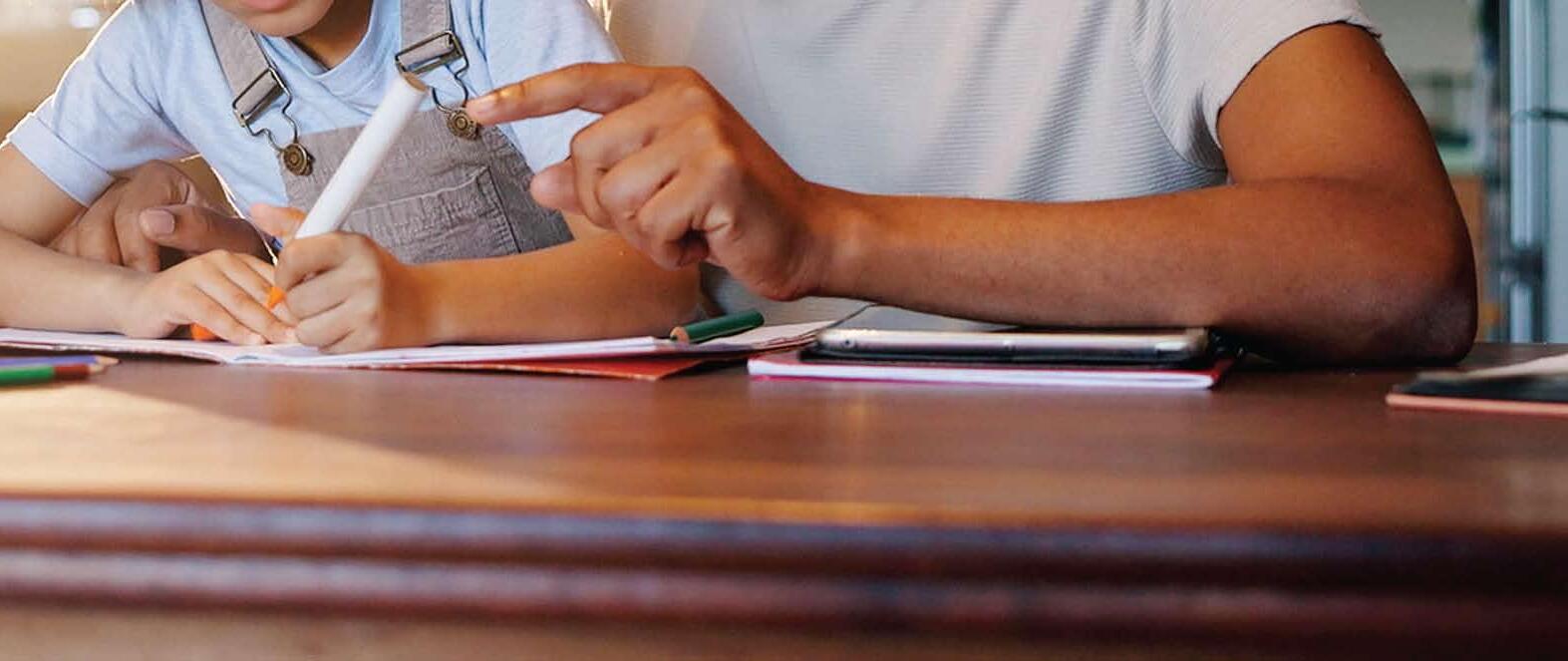
BY DANIELLE RAMOS
One of the biggest benefits of homeschooling is the flexibility to shape learning around your child’s interests, pace, and environment. However, creating a space where that learning really thrives takes a little intention. Still, a positive classroom environment at home doesn’t have to be complicated; it just needs to feel calm, inspiring, and tailored to your child’s needs.
We consulted K12.com, a leader in online education, for tips on how to best set up your kids to learn at home. These tips are especially great for homeschool families looking to make everyday life part of the curriculum. And they also work beautifully for kids who come home from school needing a quiet, supportive place to study
and do their homework.
From turning daily chores into hands-on lessons to weaving curiosity into everyday conversations, here are six simple ways:
1. Turn Everyday Chores Into Learning Opportunities
One of the best parts of at-home learning is that daily tasks can double as lessons. Watering the plants? Use this as an opportunity to discuss photosynthesis, explaining how plants convert sunlight into energy to grow. Measuring soil moisture can become a quick science experiment, tracking plant growth over time to teach patience and observation. Chores like cooking also provide endless opportunities. Ask your child to help measure ingredients and explain fractions while you cook. Folding laundry? Turn it into
a lesson on sorting, patterns, or basic math by counting pairs of socks. These simple, handson activities bring lessons to life, showing kids how learning connects to the real world.
2. Create a Learning-Rich Home
Making your home a learning-rich space means setting up areas where curiosity thrives and inspiration is woven into daily routines. Start by creating a dedicated, comfortable workspace with essentials like notebooks, pencils, and subject-specific tools. Surround this space with materials encouraging exploration, such as bookshelves filled with fiction, nonfiction, and educational games.
Go beyond the desk, too. Hang up maps in the hallway or display a calendar featuring daily facts. Create a “question corner” where kids can write down things they wonder about and set aside time each week to explore them together.
3. Encourage Curiosity Through Everyday Conversations
Kids are always learning, even during everyday conversations. When they mention something interesting, follow up with open-ended questions like, “Why do you
think that happened?” or “What would you do differently next time?” This keeps their minds active and encourages critical thinking.
Guide discussions toward discovery. If they talk about a favorite TV show, discuss the storyline, character motivations, or the science behind special effects. If you are walking the dog and notice changing weather, talk about seasons, climate, or how animals adapt. You do not need to turn every conversation into a lesson; just keep curiosity alive by letting kids explore ideas naturally.
4. Foster a Love for Reading
A love for reading is one of the greatest gifts you can give your child. Reading boosts brain function, reduces stress, and strengthens comprehension skills. Creating this habit does not have to feel like a chore.
Allow children to explore different genres, like adventure, mystery, or nonfiction. Keep books within reach around the house and set aside family reading time, whether it is before bed or through audiobooks. Visit your local library. Make reading a natural

part of the day by discussing books over meals or during downtime.
5. Transform Screen Time Into Learning Time
Screen time is a big part of life, especially for students in online school. But it can be more than just logging into lessons or scrolling through apps. With a little creativity, screens can become powerful tools for learning and exploration.
Introduce educational content like interactive science videos, coding games, or virtual museum tours. Use apps that teach problem-solving, languages, or creativity to
balance entertainment with learning. View or play educational games together to discuss what they are discovering.
6. Model Lifelong Learning
Children learn by observing the people around them, especially their parents. When they see you curious, engaged, and open to new experiences, they are more likely to adopt the same mindset. Share your interests and learning moments with them, whether reading a new library book, trying a recipe for the first time, or researching a topic online. Involve them in your learning process. If you are troubleshooting a project or picking up a new hobby, talk through the steps you are taking and the challenges you are facing. Let them see that learning is a lifelong journey.
Tips originally published on online learning solution, K12.com. K12 offers families a range of flexible education options, including tuition-free online public schools, personalized tutoring, and accredited homeschool curriculum designed to meet students where they are and help them thrive.
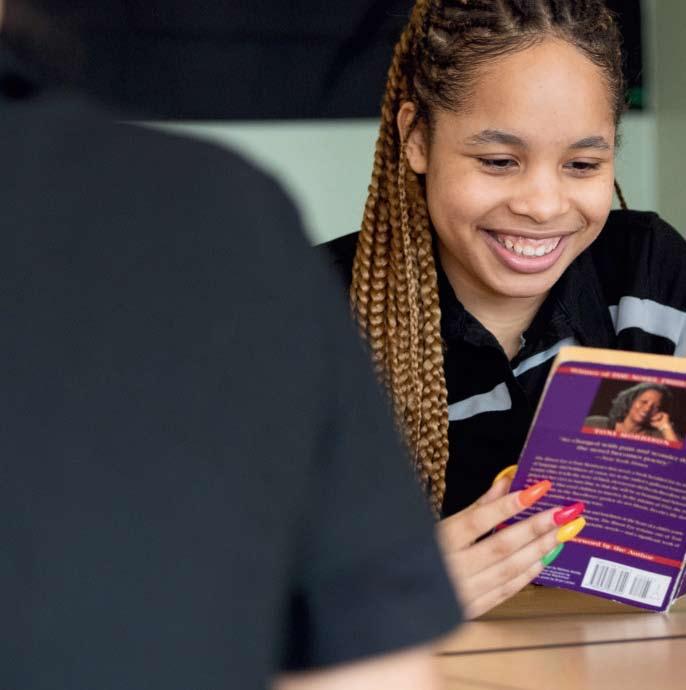

BY TIFFANY D. TROTTER HEAD OF SCHOOL
“Every day, my daughter wakes up early, ready to learn – and comes home with a smile.” This parent’s words capture something magical happening at The Kew-Forest School – and they represent a transformation that can now reach thousands more Queens families.
For too long, independent school education has operated under an outdated model where excellence was only affordable for families earning $200,000 or more annually.
At Kew-Forest, we’re redefining this paradigm through three fundamental changes: expanded access, world-class quality, and proven results. Together, these pillars redefine what’s possible in our community.
Expanded Access: Opening Doors Across Queens
Big news! Kew-Forest has fundamentally reset tuition to $31,500 for all grade levels, a 33% reduction that will open the doors to nearly 500,000 additional families within our expanded catchment area.
Consider the math that previously excluded so many families: with typical independent school tuition well over $50,000 in New York City, according to the National Association of Independent Schools (NAIS), families needed household incomes of approximately $207,000$215,000 to comfortably afford an independent school education. Only 2-5% of families within reasonable commuting distance in Queens met that threshold. Why should financial circumstances determine which children get to unlock their potential?
As one of only two PS-12 independent schools in Queens – serving a borough where 19.4% of students attend private schools – we recognized our responsibility to serve our community more broadly. Our strategic tuition reset and tuition assistance ensure we can meet that demand while maintaining our century-long commitment to excellence.
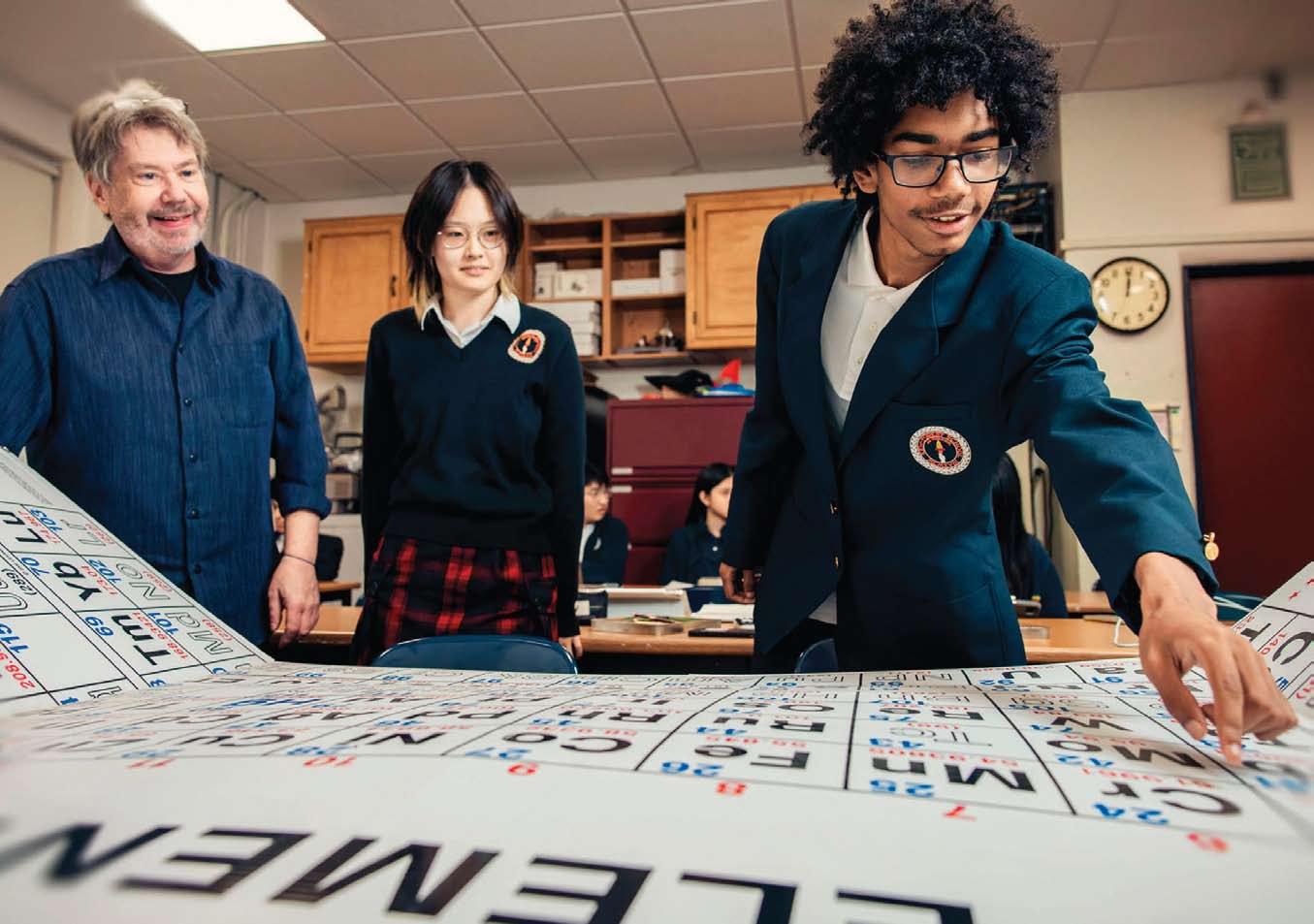
World-Class Quality: Where Learning Comes Alive
But accessibility means nothing without quality. What makes a Kew-Forest education truly distinctive? It starts with our small classes, nurturing environment, and challenging, inquiry-based curriculum.
As an International Baccalaureate PYP and MYP candidate school*, we’ve joined a global network that prepares students who embody our founding mission of being “...a force for good in the world.” When our sixth graders study jaguars – our school mascot – they explore how human societies interact with native wildlife in history, express their learning through movement in dance, and understand their role as global citizens. This is one way students unlock their imagination.
Take Marcus, a fourth grader whose relationship with reading transformed from struggle to passion – he now eagerly devours fantasy series while his STEAM classes sparked such interest in science that he conducts experiments at home. Or Nova, a first grader whose natural curiosity drives her to research animals and create science experiments in her kitchen.
Current senior Ligaya thrives in our diverse community, representing over
60 countries and 30 different languages. She leads multiple clubs while engaging in “long-winded debates” with chemistry classmates and deep literary discussions with her U.S. History teacher—the kind of intellectual community that emerges when students feel genuinely known.
The outcomes speak for themselves: We have a 100% college acceptance rate, and 82% of our seniors head to colleges in the top 10% of U.S. News & World Report rankings. But more importantly, our graduates leave as confident, curious, globally minded young people ready to tackle whatever challenges await them.
Alums like Lauren ‘23, now at Cornell studying genetics, credit Kew-Forest’s Scientific Research Club with inspiring her passion for research. Sascha ‘22 found the confidence to attend her dream school, the University of Michigan, where she’s pursuing a double major in Political Science and Psychology. Similarly, Lee ‘81 discovered his analytical strengths here, preparing him for Northwestern University and a successful three-decade IT career. They all learned to unlock their futures at Kew-Forest.

Current students show this same trajectory. Seventh-grader Caleb transformed his grades from Ds and Cs to As and Bs through determination and our small school’s support. Olivia, a seventh grader, found her voice through creative projects and drama club. Max, a senior, found that relationships with teachers over multiple years have helped him “emerge from his shell” and develop confidence to serve him in college and beyond.
The morning excitement that the parent described—her daughter ready to learn, coming home with a smile—is what we see every day at Kew-Forest. Your child’s future starts with that daily enthusiasm about learning.
If you’re curious whether Kew-Forest might be right for your family, we invite you to visit our campus and discover how we help students unlock their excellence. Join us at an upcoming Open House on Saturday, October 4 (Lower School) or Saturday, October 25 (Middle & Upper School) . To register, visit our new website at kewforest.org/visit . After all, in a borough as diverse as Queens, shouldn’t outstanding education be within reach for every family?
Now More Affordable. Still Exceptional.
*The Kew-Forest School is a candidate school**
for the PYP and MYP. This school is pursuing authorization as an IB World School. IB World Schools share a common philosophy — a commitment to high-quality, challenging, international education — that we believe is important for our students.
** Only schools authorized by the IB Organization can offer any of its four academic programmes: the Primary Years Programme (PYP), the Middle Years Programme (MYP), the Diploma Programme (DP), or the Career-related Programme (CP). Candidate status gives no guarantee that authorization will be granted.
For further information about the IB and its programmes, visit ibo.org.
BY SHARA LEVINE
Having the right snacks is almost as important as having the right school supplies. Some kids may argue that they are even more important. But even if your child has a go-to favorite now, we all know they will change their mind as soon as you buy it in bulk. So, check out our list of favorite kid-tested snacks to keep in your rotation—they will keep up the snackcitment! Our picks include great-tasting selections made with quality ingredients that will have their friends asking them to trade at recess.

We love this ultra-crunchy take on the traditional knotted pretzel—it’s the same shape but flat. Snack Factory Pretzel Crisps are great for snacking on solo or as an alternative to crackers, perfect for dipping into lunchtime hummus and other favorite dips. Snack-size flavors include Original, Garlic Parmesan, and Buffalo Wing. Snack Factory Pretzel Crisps are available at all major retailers, including Target and Walmart.

Like Air is the perfect name for this snack, because the texture is so light and fluffy that it does, in fact, taste air-like. Like Air is available in five delicious flavors: White Cheddar, Classic, Pancake, Sour Cream & Onion, and Cinnamon Bun (a favorite!). Co-founded by a busy Mom to two, this school-safe snack is gluten-free, doesn’t contain artificial ingredients or eight of the major allergens, including wheat, soy, peanuts, tree nuts, eggs, fish, sesame, and shellfish, and made in a nut-free facility. Like Air is available online at likeair.com, amazon.com, and ShopRite stores.

MadeGood Chocolate Chip Soft Baked Mini Cookies are thoughtfully created to keep the familiar taste of chocolate chip cookies while also creating an organic product free from nine common allergens, artificial colors, or flavors. Soft-baked and bite-sized, these are a delicious alternative to regular overprocessed cookies. They are available at most retail stores and at madegoodfoods.com.
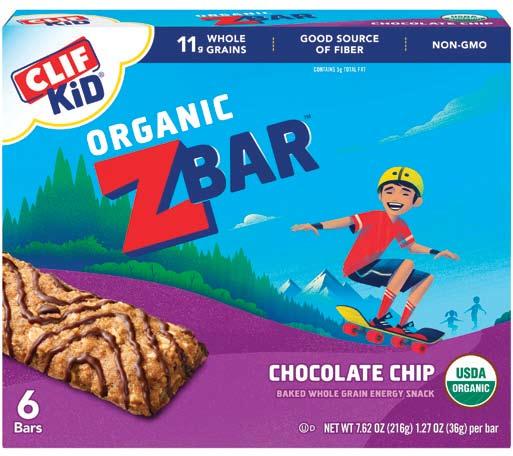
Clif Kid Zbar is a great on-the-go snack packed with at least 10 grams of whole grains per bar and certified organic. This soft-baked goodness comes in a variety of flavors, including Chocolate Chip, Iced Oatmeal Cookie, Chocolate Brownie, and S’mores. With so many options to choose from, it will keep your kids from having flavor fatigue. Clif Kid Zbars are available online at clifbar.com and all major retailers, including Stop&Shop and Whole Foods.
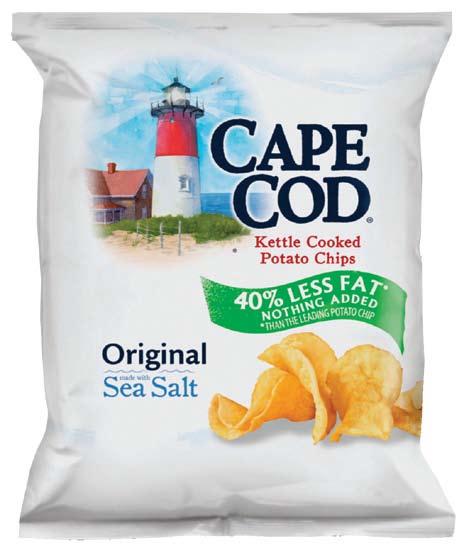
Everyone loves a bag of potato chips, and our kid testers loved Cape Cod Kettle Cooked Potato Chips, specifically the 40% less fat version (40% compared to the leading potato chip). These gluten-free chips are made with just three ingredients that are easy to understand and pack a powerful crunch! Other flavors include Sea Salt & Vinegar, Sweet Mesquite BBQ, and Original. Find Cape Cod chips at all major retailers, including Key Food and Fairway Market.



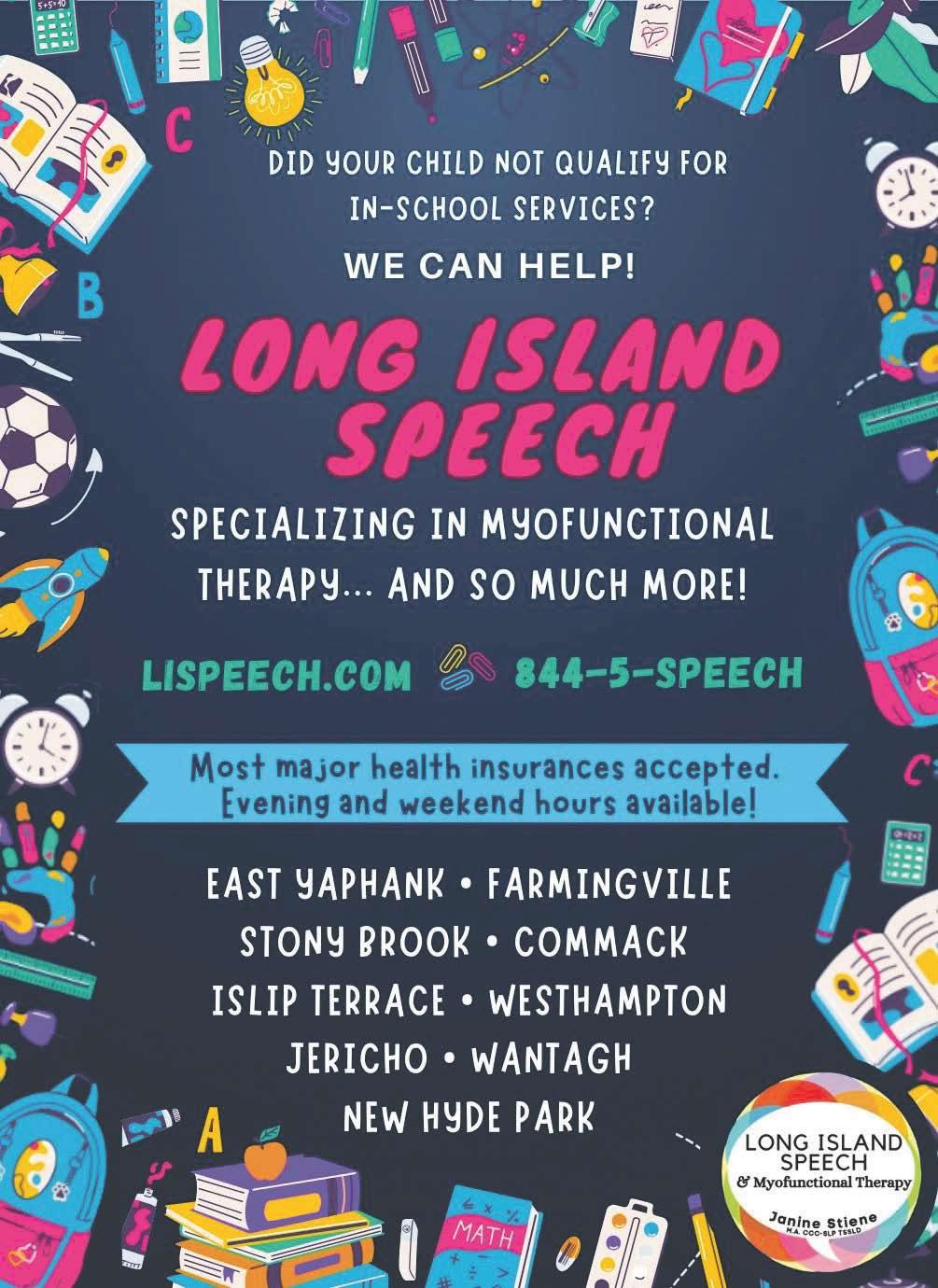
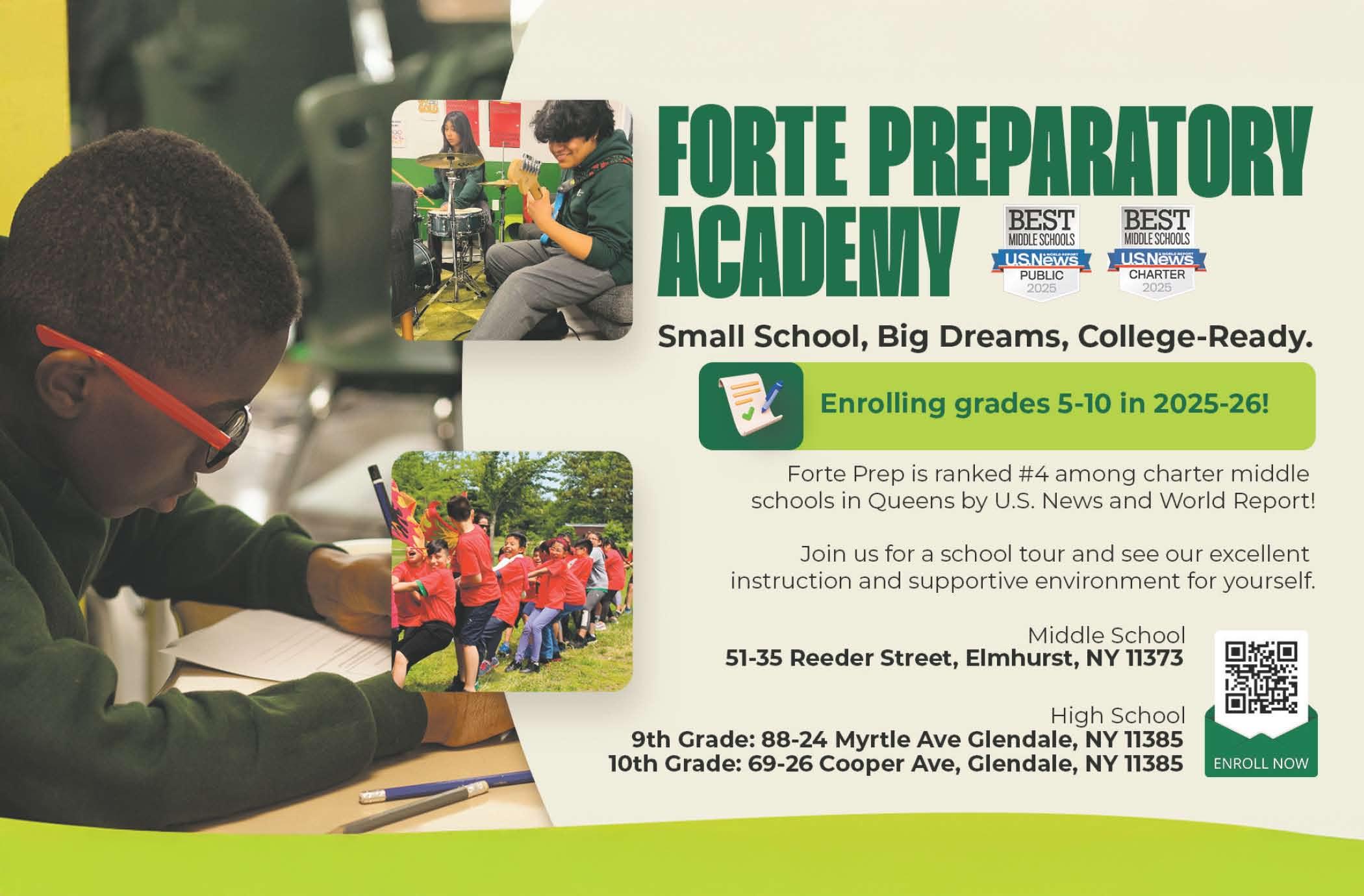
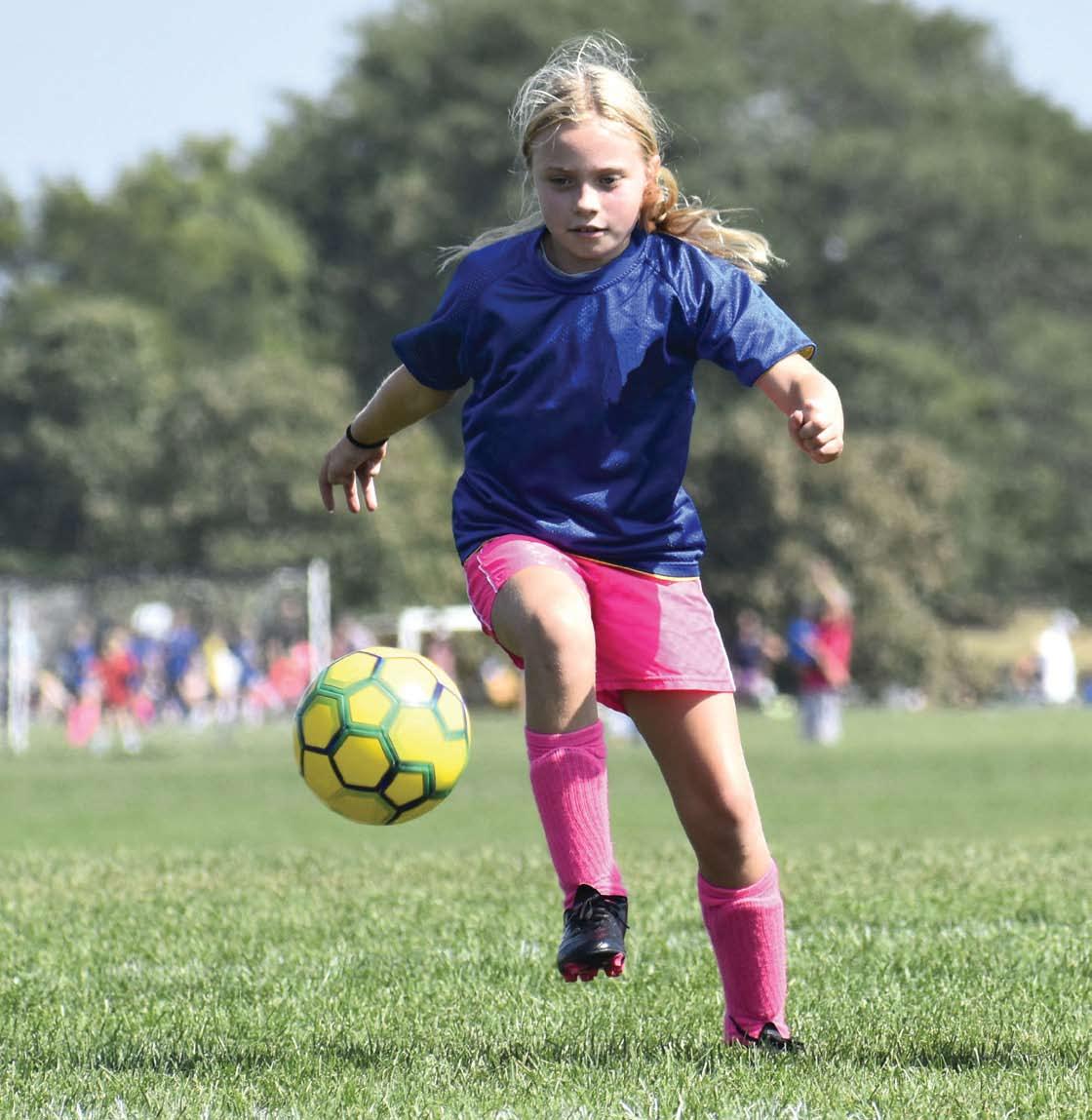
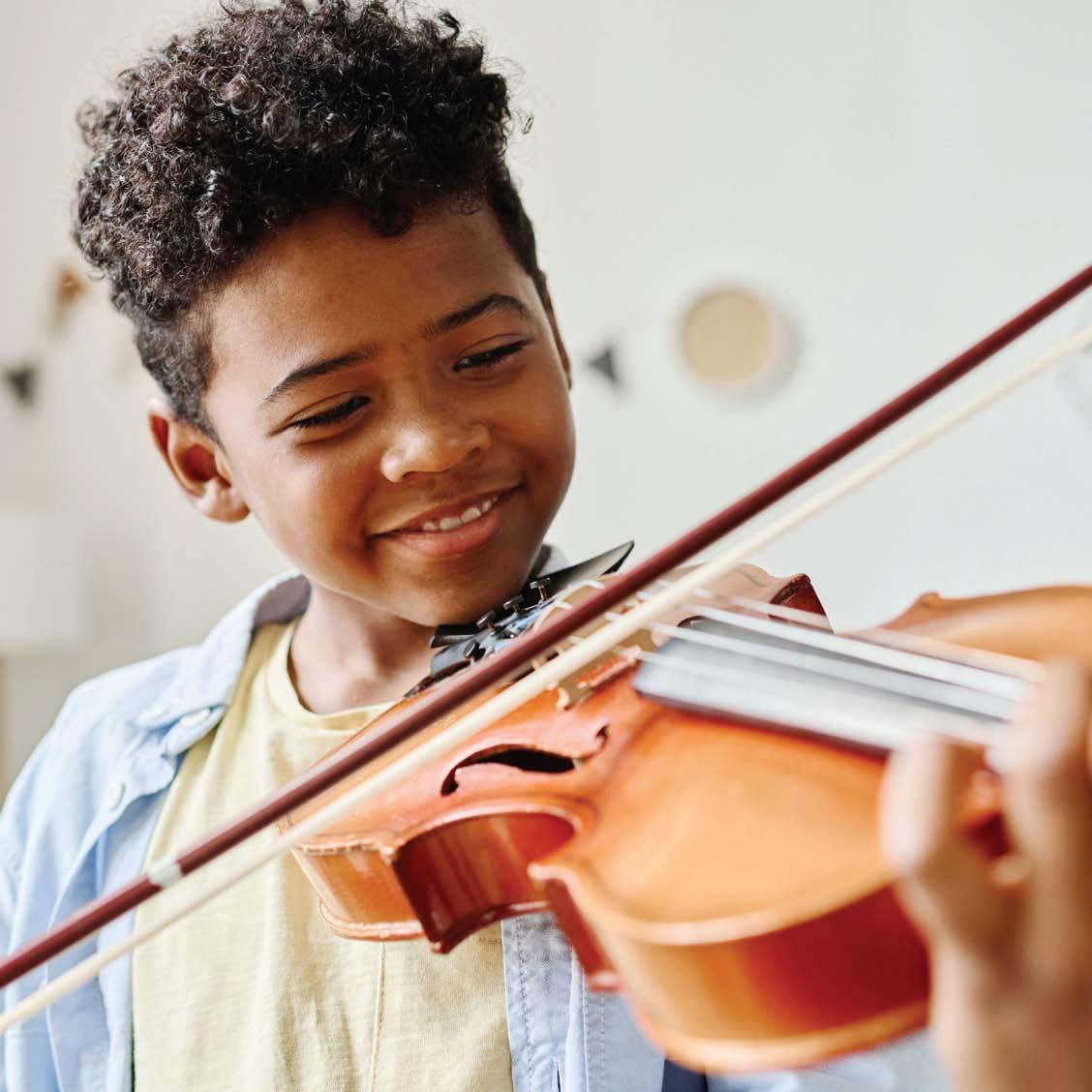
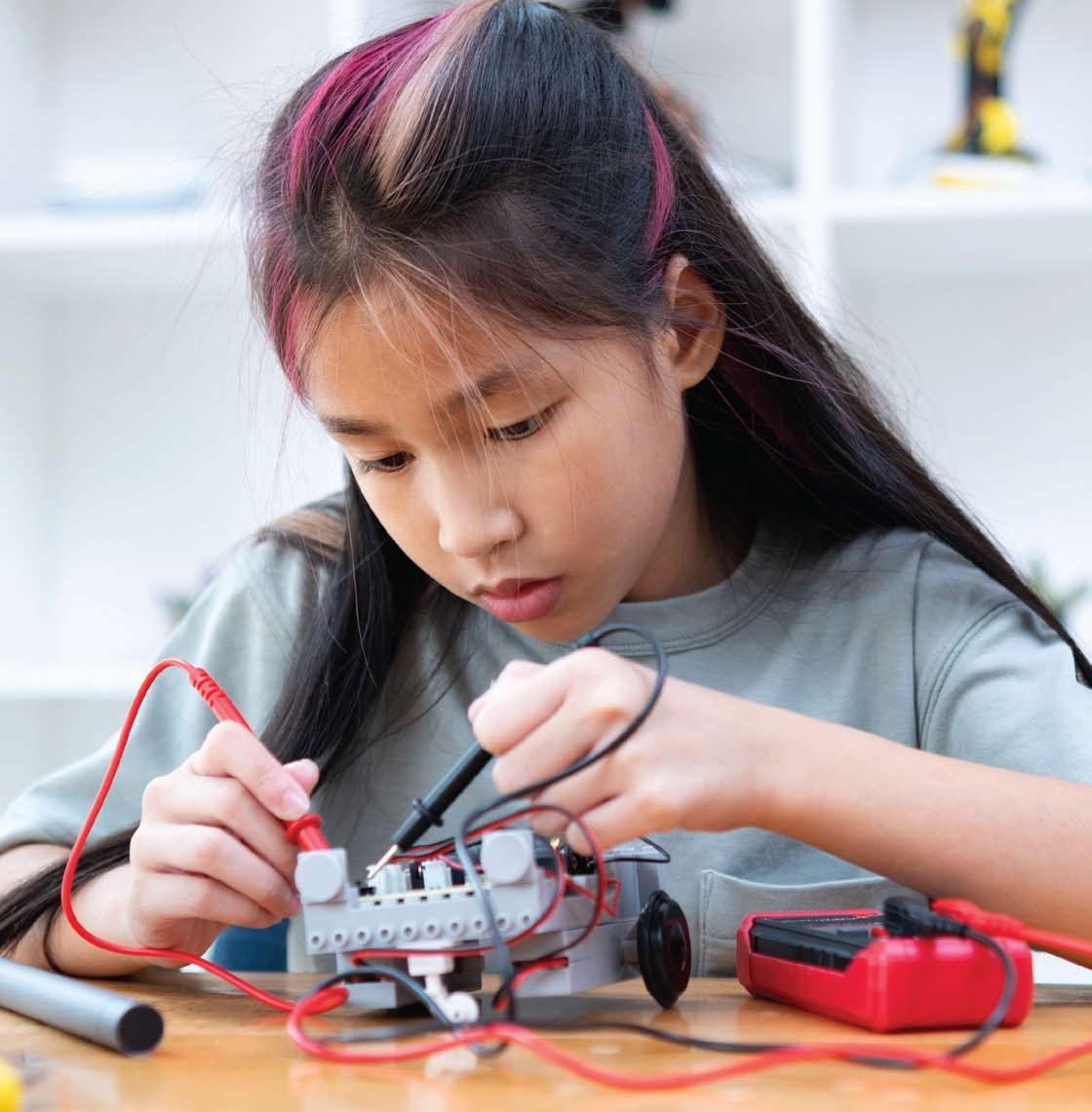
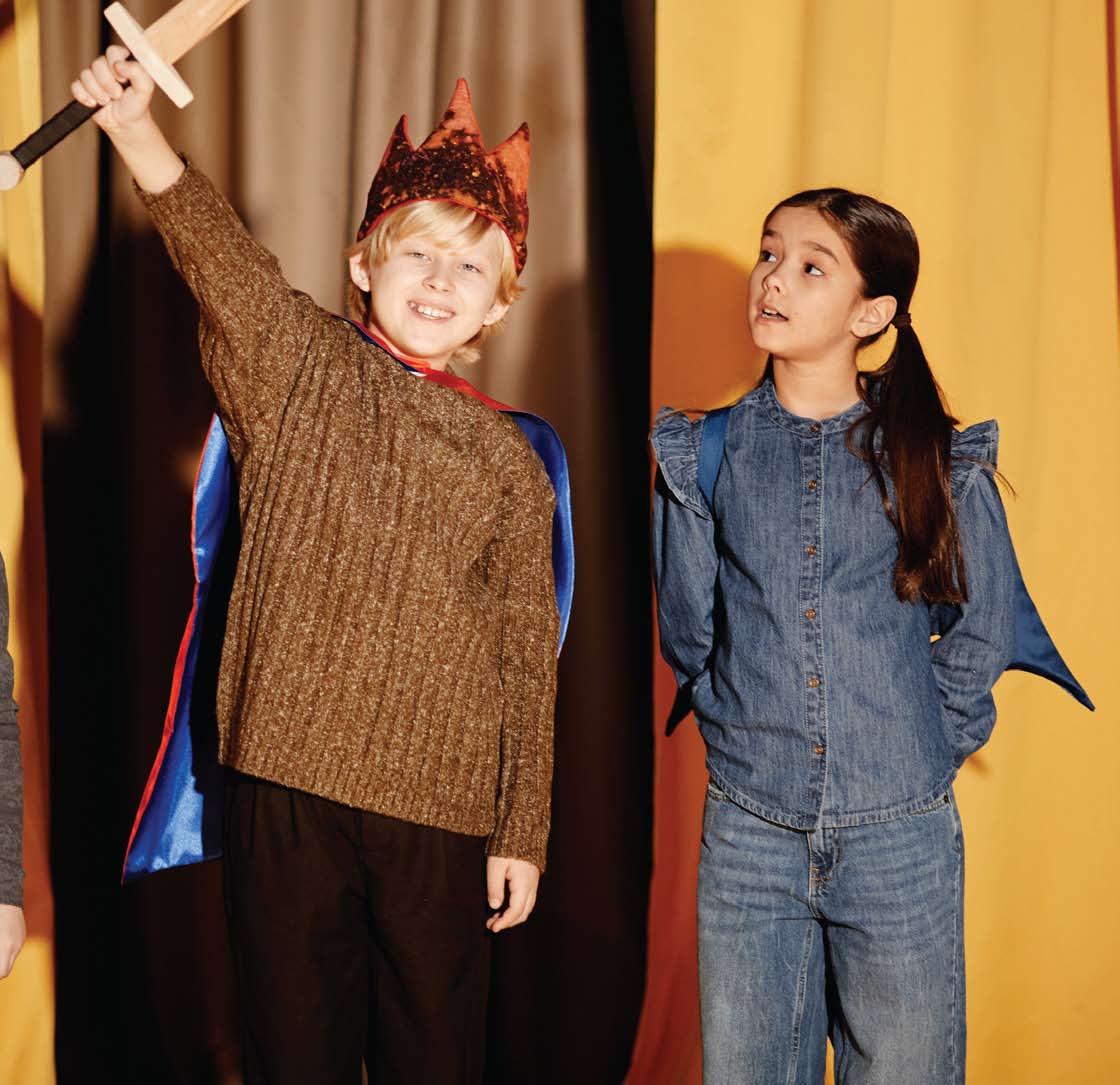


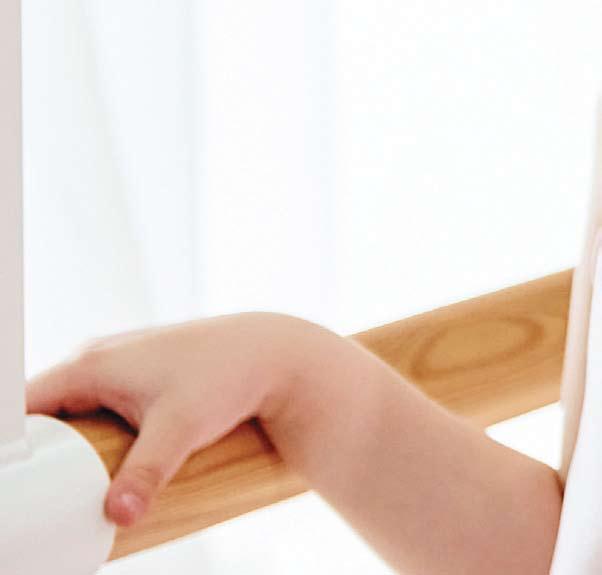
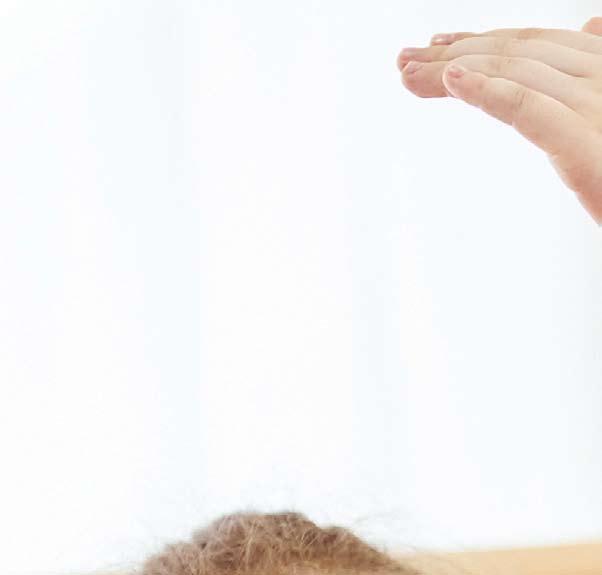
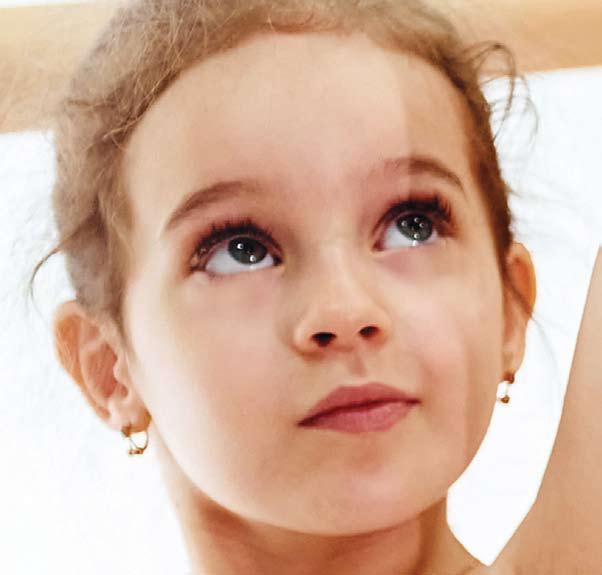


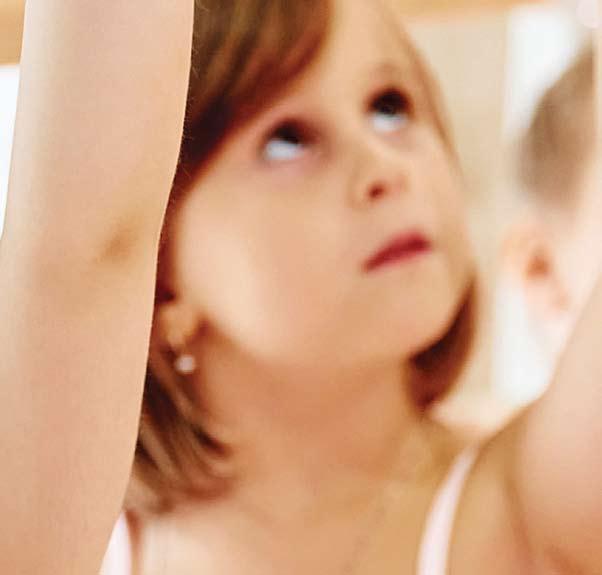



BY DANIELLE RAMOS
Veteran parents know that the backto-school hustle isn’t solely about academics. After-school activities can be just as stressful to navigate. Sports, dance, art, STEM clubs…the options are endless, and figuring out which ones will truly suit your child can feel overwhelming. How do you know what will click with their personality? And when is it better to gently encourage them to try something new versus letting them enjoy some downtime?
We spoke with Dr. Irina Gorelik, Psy.D., a licensed psychologist and parent coach
based in Brooklyn, to get her take on the subject.
Dr. Gorelik shares practical, developmentally informed tips for matching kids with after-school programs that help them thrive, whether they’re shy, high-energy, creative, or just need some unstructured time.
How can parents tell what kind of afterschool program will click with their kid’s personality?
Before considering personality, it is essential to ask yourself if the child is ready developmentally. Under age three, kids are
usually not yet developmentally ready for structured activities and can benefit more from programs such as Mommy-and-Me or exploratory/sensory programs that are openended. Once a child is enrolled in school, considering some personality/temperamentbased factors can be helpful to see what may be a good fit.
First, it is important to observe your child. Do they gravitate towards active movement (ball play, running, dancing, music) or quiet focusing? Do they prefer solo exploration or enjoy the energy of being in a group? Do they thrive in predictable play (gravitate towards the same types of play) or
lean towards novel things?
The answers to these questions may help you decide if the child would thrive more in open-ended or structured activities, or high-energy vs. calm. If you are not sure, that is okay! If you have some activities in mind, you can observe a few different types of classes with your child. Look to see if your child wants to join or looks overstimulated and hesitant. Of course, with some temperaments, there may be initial hesitation.
If your child is shy or tends to shy away from social situations, what kinds of after-school programs can help them build confidence without feeling overwhelmed?
For children who are more on the quiet side, or temperament-wise on the slowerto-warm-up side, it may be tempting to expose them to as much socialization as possible for practice. While there are ways in which practice can be helpful and necessary, throwing a child like this into many highenergy activities can backfire. These children often need a gradual approach, such as lowpressure settings that are somewhat openended, where kids can go at their own pace.
Another consideration is whether the class/activity and instructor help kids focus on their growth and development, and process-based learning, vs. one based solely on competition and winning/losing.
Things to look out for:
• Small groups of 6-10 kids
• A consistent instructor whom the child can get used to
• Less focus on audiences and performances early on
• Permission to observe one or two classes before deciding to join
• Routine of what to expect in the class
Depending on the child’s interests, this might be a class with open-ended projects or crafts, such as art or pottery, and music groups. If you are looking for an activity with movement, consider yoga for kids, martial arts (a class focused on self-improvement and growth-based mindset, less on competition), small group swim lessons, and improv-based classes in movement, dance, or drama.
What after-school options work best for high-energy kids or those with trouble sitting still?
Does your child gravitate towards active movement or quiet focusing? Do they prefer solo exploration or enjoy the energy of being in a group? Do they thrive in predictable play or lean towards novel things?
For high-energy kids, it is helpful to look for a program that allows them to channel that energy in a purposeful way that they can also enjoy! The choices often are between more structured programs vs. less structured programs, and each can have benefits depending on what you are looking for and the child’s personality.
It is also important to meet the coach to ensure that you align with their style. Coaches who help kids build confidence by focusing on their individual growth can be significant in keeping kids engaged and building their confidence in the skills.
Examples of more open-ended high-energy programs:
• Parkour
• Obstacle courses
• Nature programs
For more skill-building and structured classes:
• Sport-based extracurriculars
• Martial arts: discipline/focus and high movement
For creative or artsy kids who don’t always love rules or structure, how can parents find programs that keep them engaged without stifling their imagination?
For kids who don’t always do well with structure but are creative, it may be helpful to find programs and activities that are more open-ended.
These programs have guidance, but the child has a sense of agency over the finished product. When observing such programs, it may be helpful to notice if the instructor can help children focus more on process and curiosity versus “doing a good job” or completing the task accurately.
Some ideas:
• Maker spaces
• Pottery/clay building
• Open studio art
• Sensory play programs
• Drama/movement studios with a focus on improv
And what if your kid just flat-out doesn’t want to do any after-school activities? How do you know when to encourage them to try something new and when to give them downtime?
This is a great question! There is a lot of pressure to fill a schedule and keep kids occupied, especially if the child’s peer group is busy after school Monday through Friday. There is also often the added pressure of social media and parent influencers, where it usually seems that kids are always involved in soccer practice, dance, and every other imaginable activity, which can add to parental guilt of feeling that you are not doing enough. To relieve some of that pressure from a psychological and developmental perspective, I say that often, less is more when it comes to after-school activities.
While everyone’s circumstances, capacity, and schedules are unique, children do not always need to be occupied, and free time is critical to development across the board, especially for younger children. Downtime offers time to build creativity through independent play, builds autonomy and decision-making skills, and can help with self-regulation, as it offers time for quiet play.
Some things to consider when determining between allowing more downtime and a gentle push include energy levels when getting home, interest levels, socialization access, and level of physical activity.
Suppose a child shows interest in a particular activity or topic, does not have many days of the week when they are busy after school, is a bit socially isolated, and has not had experience with specific activities yet. In that case, it might be appropriate to give the gentle push.
A few things that might help:
• Offer to observe first or check it out together
• Try one-time activities, such as workshops or drop-in sessions, to gauge interest and fit
• Present it as “giving it a try” rather than a long-term commitment
By Náosha GreGG
As back-to-school season arrives, you may consider enrolling your child in an after-school program. New York City just announced 40 new afterschool programs, opening 5,000 new spots for K-5 students citywide. According to a 2022 YouScience study, 75% of high school graduates feel moderately, slightly, or not at all prepared to make college or career decisions, while another study found that nearly 60% of parents felt their teenagers lacked essential life skills, such as knowing how to make the bed, clean a toilet, or vacuum a room, when they left home.
After-school programs can vary, but they are a great resource for young children and teenagers, and are a great way for your child to explore their interests and develop essential life skills that can assist them later in life. From cooking to woodshop, here are some after-school programs that are sure to instill life-long skills into your child.
What kid doesn’t like to get their hands dirty, especially when they can eat it after? Cooking classes are a great skill to embed in children. It is not only a great way to get creative and explore new flavors, but it can also open doors to learning about new cultures, increasing vegetable intake, and incorporating and practicing math and science skills through measurement and temperature gauging. A study from Tufts University found that 28% of Americans say they don’t know how to cook, while another study found that 54% of Americans admit they are not proficient in the kitchen. Cooking classes are an investment that will continuously serve your child and ensure they can prepare their own meals and produce independence while eating healthy.
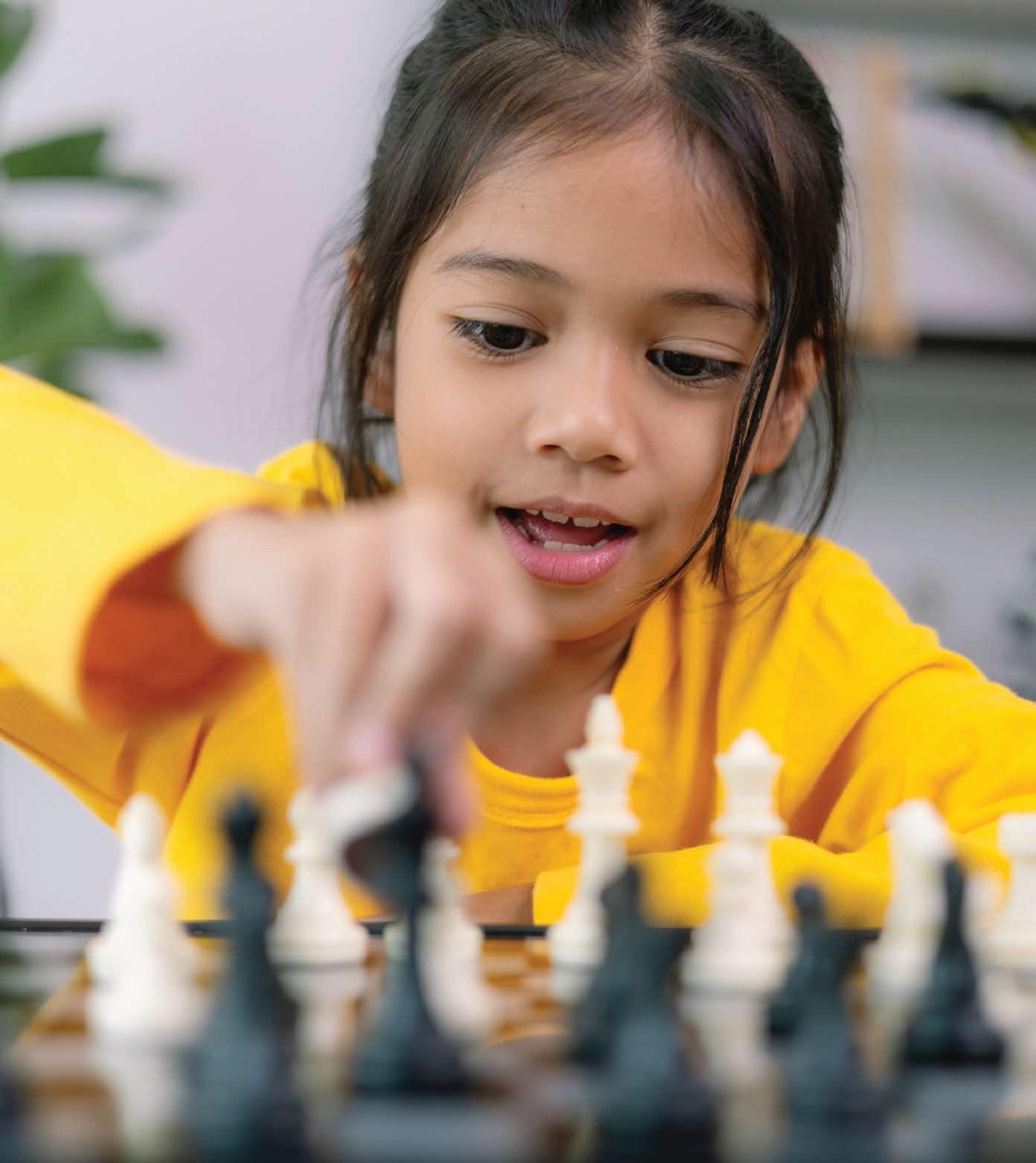
Drowning is the leading cause of unintentional injury death for children ages 1 to 4. However, while considered a life skill, knowing how to swim is not as common among Americans as you would think
According to the American Red Cross, 54% of American adults either can’t swim or don’t have basic swimming skills. Swim classes are not only a great way to stay physically fit and gain muscle strength, but also to prevent drowning.
Some additional benefits of swim classes include improved cardiovascular health, enhanced endurance and muscle strength, and improved posture, making it a great after-school program.
Creative expression is key for young children and adults as they progress into the real world. Dance classes provide many health benefits, including improved cognitive development by learning complex and different dance combinations, improved flexibility, and boosted confidence.
In fact, dance has such beneficial effects on the brain that it is now being used to treat
people with Parkinson’s disease, according to a recent Harvard study. Dance as an after-school program is also a great way to and to build discipline and explore the various genres from modern to ballet and contemporary.
While some may consider woodshop classes outdated or old school, they still have many benefits as an after-school program. They encourage creativity and problem-solving, and can lead to lucrative careers down the road, such as carpentry. Completing a project, such as a stool or chair, also provides a sense of accomplishment and integrates math and science for brain enrichment.
Chess classes are a great after-school program to keep your child engaged and sharpen critical thinking skills. Complex situations are grounds for strategic thinking as players decide what move to make next, and teach discipline and sportsman-like behavior. It can help your child later down the line when they need to use critical thinking to make deductions.




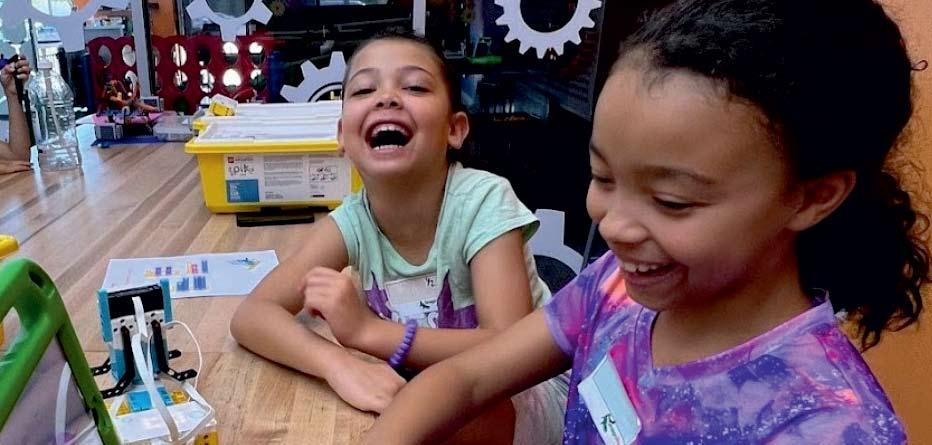


the afterschool collective 11-45 47th Ave, Long Island City 833-697-8326
info@theafterschoolcollective.org
theafterschoolcollective.org
The Afterschool Collective offers a fun-first approach to learning through its Scholars Program, where hands-on discovery meets creativity, movement, and connection in a nurturing 1:6 small-group setting. Each day brings new adventures—robot building, art projects, music, machine design, and fitness games—led by expert instructors who engage kids through play and real-world challenges. Academics are woven in through teamwork and exploration. Afternoons also include outdoor park time, organic nut-free snacks, and real-time updates via ClassDojo. Flexible pickup options, payment plans, sibling and camp discounts, and unlimited make-up days make it easy for families.
all Star Studios
108-21 72nd Ave. 4th floor, Forest Hills 718-268-2280
allstarstudiosnyc@gmail.com
allstarstudiosnyc.com
Register now for Fall / Winter
2025/26 Sessions of Jazz, Tap, Ballet, Hip hop, Lyrical, Modern, Jumps and Turns, Stretch and Strength, Improv, or Acrobatics. All programs are for ages 3 and older. Demonstrative assistants are included so that teachers can focus on students’ progression. Ask about their Dance Intensive sessions. Register for a free trial today.
my gym children’s fitness 187-08 Union Turnpike, Fresh Meadows 718-380-4599
mygym.com/queens
My Gym teachers are dedicated to fostering children’s confidence and self-esteem through age-appropriate activities and the encouragement of caring.Memberships include structured classes, which are age-appropriate and designed to build physical and social skills. Practice and Play (open gym) are parent-supervised sessions where children can practice skills and explore the gym at their own pace. Teachers emphasize a fun, physically engaging environment where children feel loved and supported, promoting confidence and self-esteem.
n adia’s performing arts centre Studio 208-42 Cross Island Pkwy., Bayside 718-279-3980 nadia@nadiadance.net nadiadance.net
A dancer, mother, and educator, artistic director, Nadia Avigliano, has learned that children possess many different learning styles. Through dance education, they acquire skills in rhythm, patterning, memorization, problem solving, spatial and body awareness, musicality, precision, and coordination. The center nurtures students’ self-esteem and encourages them to strive for their best. Whether your child hopes to dance professionally or wants to try something new, they offer various levels of engagement suitable for beginners to seasoned dancers.
performing arts conservatory of 35-57 89th St. Jackson Heights 718-639-1425 / 917-774-3411 info@paconyschool.com paconyschool.com
Offering quality music and arts

education for all levels, the Performing Arts Conservatory of New York provides private lessons in piano, strings, guitar, drums, voice, and more. Visual arts classes include drawing and painting in watercolor, oil, and acrylic. Students perform in six concerts annually and prepare for auditions. Group classes in theory, choir, and chamber music enhance training. Voted Best Music School in Queens (2017–2025).
r idgewood dance Studio 60-13 Myrtle Ave., 2nd Floor, Ridgewood 718-497-2372
ridgewooddancestudios.com
Believing that it’s important for every child to experience the art of dance, Ridgewood Dance Studio has been dancing into the lives of the community for over 40 years. Learning to dance is a vital part of a child’s development and encourages discipline, mature habits, poise, personality,


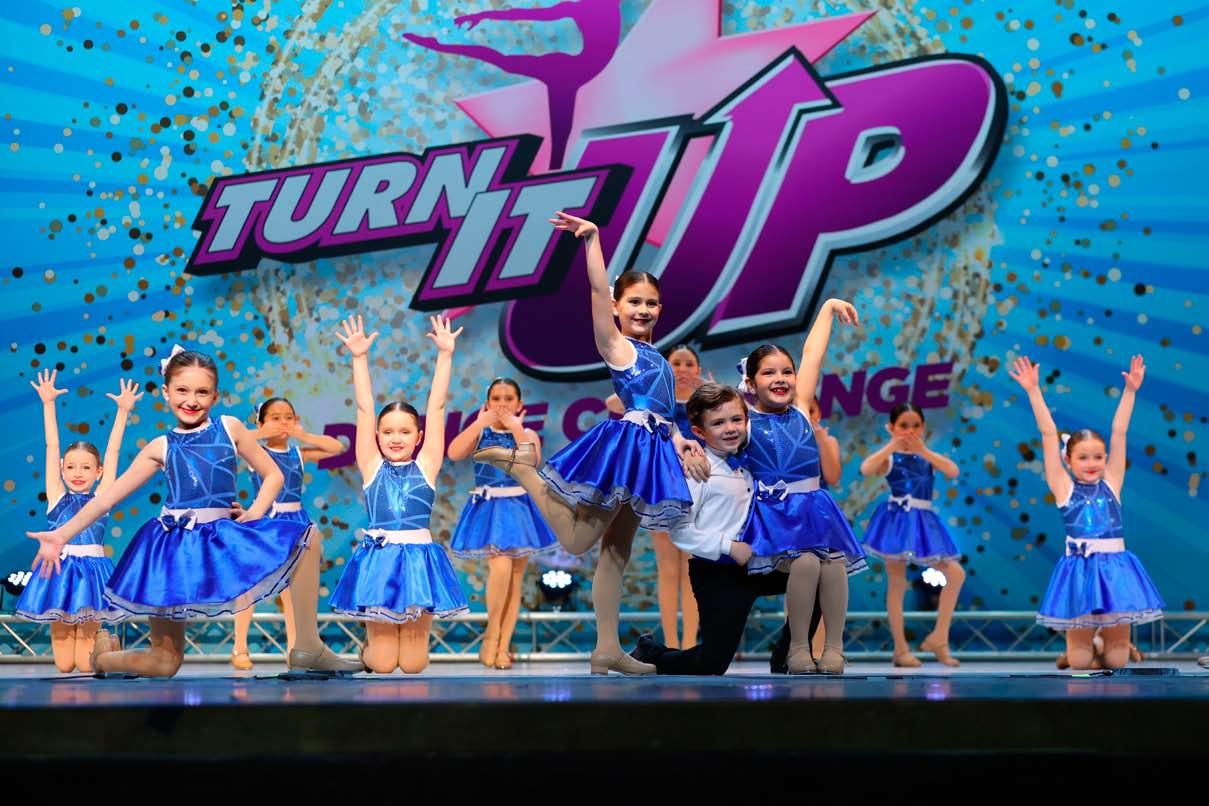
Ask any kid who their favorite teacher is, and it’s likely to be the one teaching their favorite subject (which explains why there are so many beloved gym teachers out there). So there’s a good possibility that the person leading the exciting activities your child attends after school — when the fun really happens — is someone they admire greatly and enjoy learning from. That’s why it’s so important that the staff at any afterschool programs your child enrolls in are trustworthy, knowledgeable and talented, like the professionals listed below who each serve as exemplary leaders in their respective fields. Read on to learn about the person who might be at the forefront of your child’s next afterschool adventure.
Rysa Childress, Owner
Rysa’s passion for the art of dance and music, which started over 35 years ago, led her to experience many different styles from Ballet, Jazz, and Hip Hop to Salsa, Belly Dance, and African. She earned her BA in Interdisciplinary Studies/Early Childhood with a minor in Dance. She has taught, performed, and choreographed for over 20 years throughout the U.S. Since 2008, Rysa has been the proud Owner/Director of All Star Studios in Forest Hills, Queens.

Jessica Chakarji M. Ed, Founder & Director
Jessica envisions a future where every child, regardless of income, has access to world-class STEM education. As a first-generation graduate, she understands how education opens doors and is committed to creating that same pathway for children of color. With S.T.E.A.M. careers projected to grow 13% by 2027, Jessica is driving equity, sparking curiosity, and empowering the next generation to lead in the careers shaping our world.

Florence Webber, Director & Owner
Owner, Florence Webber, began taking dance classes at the age of six at Joe Wilson’s Dance Studio and he taught her the love of dance. It has been the most rewarding path she has taken. “It is amazing to see students come and go and grow into fine young adults and also have many students return to the studio with their children”, she explains.



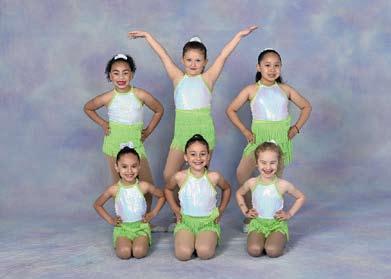

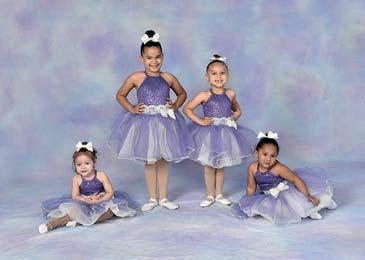
Choosing a preschool is one of the first big milestones in your parenting journey, and it’s a meaningful one. For many, it’s where your child begins to explore the world beyond home on their own, make new friends, and hopefully, start building the foundation for a lifelong love of learning. Preschools across New York offer so much more than finger painting and storytime (though there’s plenty of that, too!). These early learning spaces are filled with creativity, structure, and play-based learning that help kids grow emotionally, socially, and intellectually, so choosing the right one is important. A good preschool helps your child build social skills, follow a routine, and learn how to settle into the structure of a classroom while having fun. This helps make the transition to kindergarten smoother. It’s also a chance for parents to get a little breathing room while knowing their child is in a safe, supportive environment. We’ve rounded up standout preschools in and around your neighborhood to help you find the best fit for your family.
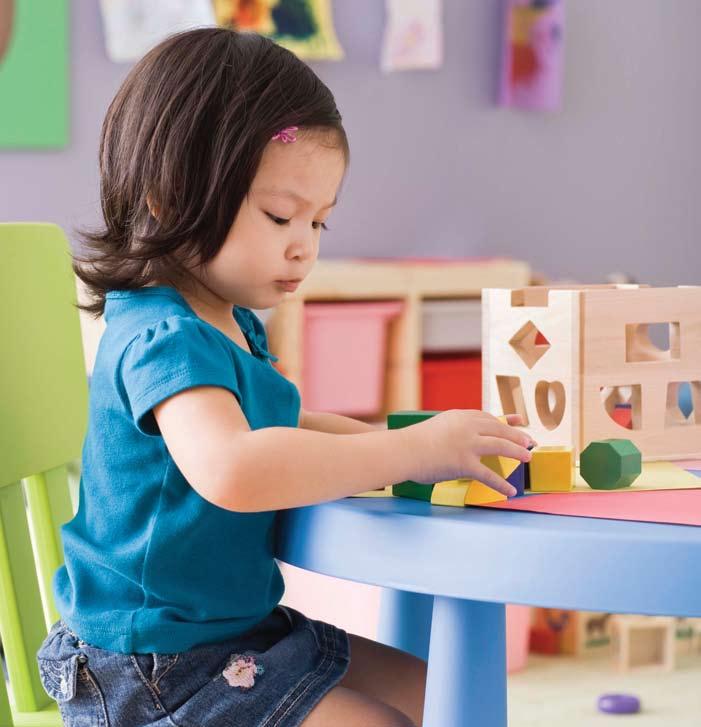

countryside m ontessori School 354 Lakeville Road, Lower Level, Great Neck 516-466-8422, info@cmsgn.com cmsgn.com
Countryside Montessori School believes in creating a peaceful atmosphere where respect for each other, community, and the environment is an everyday occurrence. The school offers children ages 18 months to 6 years a well-balanced and enriched curriculum, which includes traditional subjects, art, and music. They are in an estate-like setting with an outdoor playground and nature walks. Classrooms are fully equipped and spacious. The school has two toddler classrooms and two primary classrooms. The toddler class is for children 18 months to 3 years old. The primary class is for 3 to 6-year-olds and includes nursery, pre-K, and kindergarten. The primary class curriculum contemplates a three-year cycle. There are after-school programs offered throughout the school year. Proudly serving Great Neck, Manhasset, NY, and the surrounding community.
g arden School’s e arly childhood cluster 33-16 79th St., Jackson Heights 718-335-6363 gardenschool.org
Garden School’s Early Childhood Cluster offers a joyful first school experience, where young learners build confidence, curiosity, and independence. Small class sizes and nurturing teachers ensure every child feels known and supported as they grow in early literacy, numeracy, and socialemotional development. In the Vertical Classroom, children benefit from cross-age learning with individualized attention and enjoying the Sky-Brary, a lofted reading space with a slide. Through routines and play, children steadily gain independence, learn to navigate transitions, and practice the skills of patience, cooperation, and friendship. Families are supported with clear expectations and resources, helping every child arrive ready to thrive. Located in Jackson Heights, Garden School offers a safe and welcoming environment where curiosity is celebrated. Visit their website to learn more or sign up for a virtual information session.
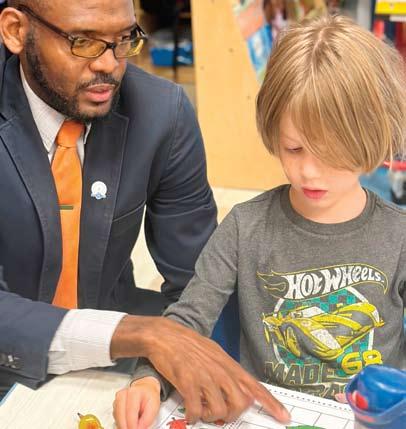
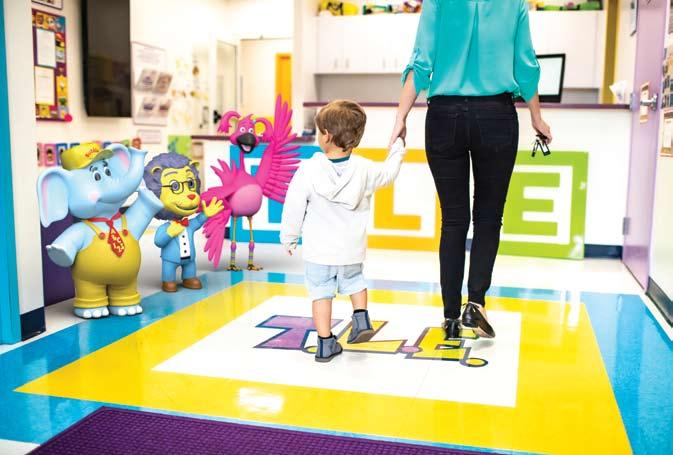
the learning e xperience
215-15 Northern Blvd, Bayside 718-224-1760, Bayside@TLEChildcare.com thelearningexperience.com/centers/bayside
The Learning Experience-Bayside is open from 6:30 am to 6:30 pm to provide both early and late care services to families. They have a secure facility, on-site playground, and indoor play area. Breakfast, snack, and lunch are provided each day to students. The program ranges from infants to school-aged kids and includes the free Pre-K for All program for 3-year-olds and 4-year-olds. After-school programs are available for school-aged students. Rolling admissions for all classes. Schedule a tour Monday through Friday to see the school, learn more about the program, tuition rates, and answer any questions.
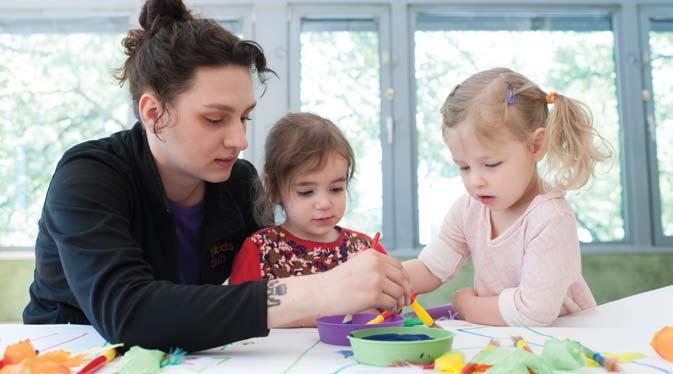
ny k ids club
Multiple Locations Throughout NYC nykidsclub.com
At NY Preschool & Kids Club, children develop a lifelong love of learning in a nurturing, engaging environment. Their new, outcomes-driven Tools of the Mind curriculum uses intentional play to strengthen emotional regulation, executive function, and problemsolving skills. Each activity is thoughtfully designed to build emotional, social, and academic readiness while encouraging curiosity and creativity. The program ensures children are well-prepared for kindergarten and helps shape their early identities as confident, joyful learners. Families value the combination of innovative teaching methods and a supportive community that inspires children to thrive. Limited spaces remain for the 2025-26 school year, offering an exceptional opportunity to begin a child’s educational journey. Learn more about enrollment and programs today.
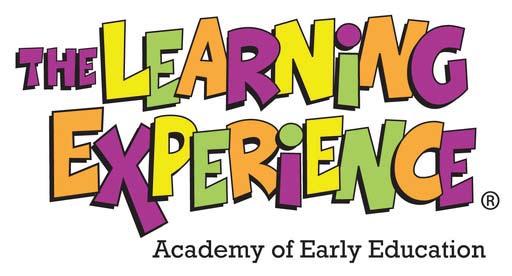
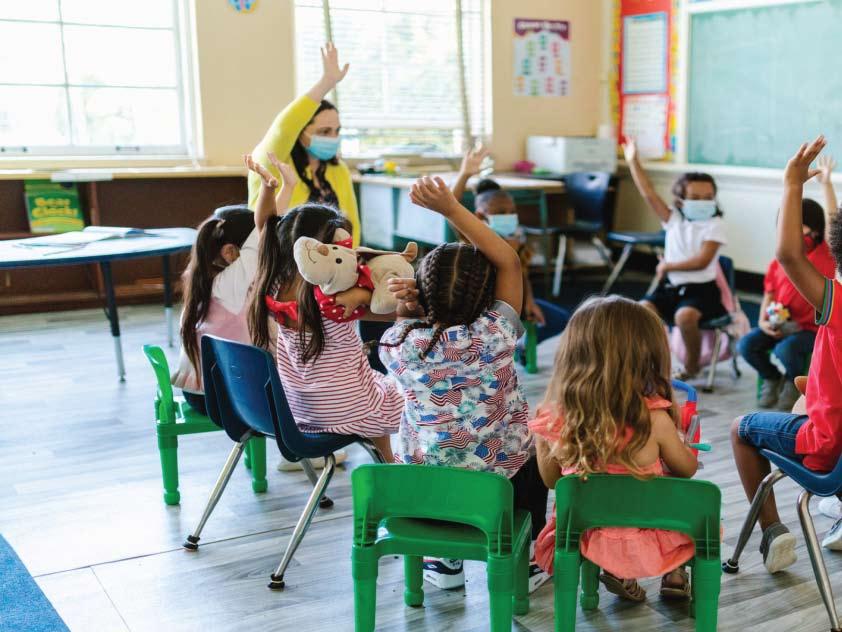
If you’re exploring school options beyond the traditional public, private, or charter school route, boarding schools in or near New York are definitely worth a closer look. These schools offer structured learning environments, built-in academic support, and a strong sense of community, all in one place to help your child blossom. Many also provide top-notch extracurriculars, college prep, and opportunities to foster leadership and confidence. Maybe you’re looking for a stronger academic fit, a little more structure, or just more support and resources. For many students and parents, boarding schools can be a solid all-around option. After all, the right school can provide the structure and support your child needs to thrive, now and in the future. Here are some excellent programs to consider.
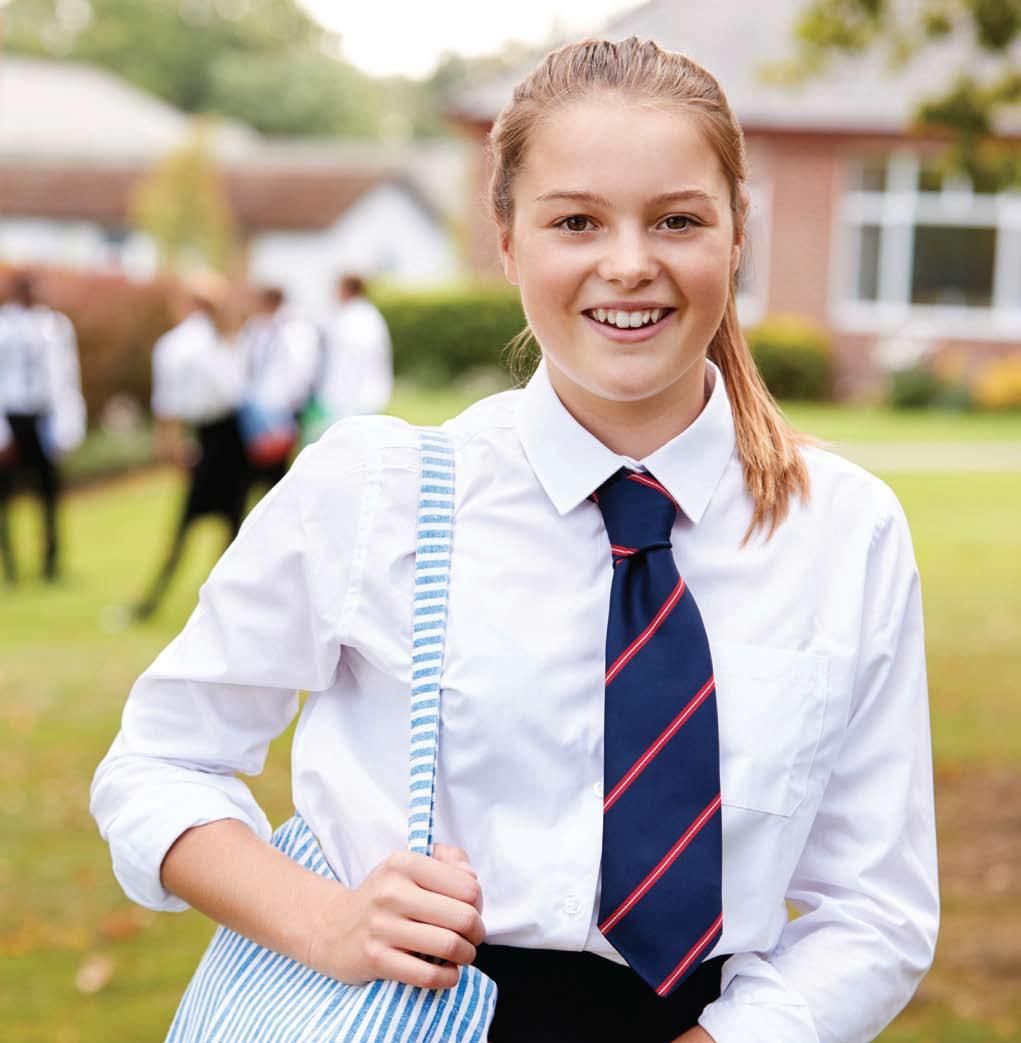

Bard Academy & Simon’s Rock at Bard College 30 Seminary drive, Barrytown, nY 413-644-4400, admit@simons-rock.edu bardacademy.simons-rock.edu
Bard Academy and Simon’s Rock at Bard College are designed for students ready to enter college early. Complete ninth and tenth grade at Bard Academy, then start college early at Simon’s Rock to earn an A.A. degree, then matriculate to Bard College to earn a B.A. degree. Bard Academy and Simon’s Rock have relocated to a new campus adjacent to Bard College in Barrytown, NY. Bard Academy and Simon’s Rock offer a curriculum in the liberal arts and sciences, taught by supportive, highly trained faculty who are leading scholars in their field. Simon’s Rock is committed to the pillars of innovative early college education that have formed the foundation of the Simon’s Rock experience for over 50 years.
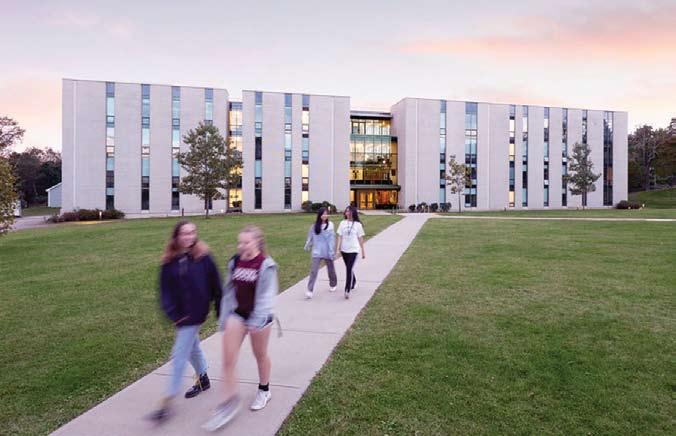
EF Academy 582 columbus ave, Thornwood, nY
914-495-6056 efacademy.org
At a modern, private day and boarding high school in Westchester County, students join a dynamic and diverse community representing over 60 nationalities. EF Academy offers the prestigious IB Diploma Program, preparing students for global academic excellence. Each student is supported in crafting their unique path to higher education with personalized, one-to-one university guidance. For those seeking flexibility, the school provides a unique 5-day boarding program, combining the benefits of residential life with the comforts of home on weekends. Here, students are not just educated—they are empowered to thrive in the real world.
Harrow International School New York 500 Montauk Highway 631-869-1572, admissions@harrownewyork.com harrownewyork.com
Harrow International School New York, situated on its extraordinary 170-acre Long Island waterfront campus between NYC and the Hamptons, offers a prestigious boarding and day school for grades 6-12. Rooted in 450-year-old British traditions, it provides the IB MYP and IB DP, blending rigorous academics with realworld readiness. Flexible options include 5-day boarding with weekend returns, 7-day boarding, or day school. Advanced facilities such as science labs, arts centers, and athletic fields support a holistic approach to development. Small class sizes ensure personalized attention, while a strong pastoral care system fosters leadership, confidence, and character. With a global student body and a values-driven community, Harrow New York nurtures well-rounded, future-ready individuals. Learn more at harrownewyork.com.


Ross School 18 Goodfriend Drive, East Hampton 631-907-5400
ross.org
Ross School’s mission is to change how education meets the future; foster interdisciplinary, integrated thinking and innovative leadership; engage fully in the global community; and facilitate lifelong learning. Ross School is a co-educational boarding (grades 7–12, postgraduate) and day school (preschool – 12th grade, postgraduate) located on two beautiful campuses in East Hampton and Bridgehampton, New York, about two hours east of New York City. Serving approximately 320 students and attracting a world-class faculty, the School offers a global, integrated curriculum with engaging courses in science, math, arts, humanities, and wellness, with opportunities for independent study, competitive athletics, extracurricular activities, and travel. The school stresses direct personal experiences, inquiry through primary sources, and hands-on interpretation and analysis of information. Ross School has a successful college placement program, with 100% of applicants receiving acceptances at competitive colleges and universities.









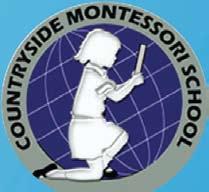



Governor Kathy Hochul offers an exclusive on school cell phone bans, child tax credits, and other family-first initiatives
By Náosha GreGG
New York State Gov. Kathy Hochul is a woman who wears many hats. When she’s not rolling out free community college for New Yorkers 25 and older while wearing her famed Chuck Taylor Converse sneakers, she’s enjoying a ferry boat ride with breathtaking views of the city she loves. Over the past year, Governor Hochul has implemented numerous bills and programs aimed at supporting New York families. Ahead, Hochul gets candid about the positive changes she’s determined to make for New York families — from cell phone bans in schools to child tax credits that would put money back in parents’ pockets.
Q: You recently banned cell phone use in all New York schools. Can you tell us more about that decision?
A: The decision came about after a journey I set forth on, and that was to try to figure out what was happening to our young people. I saw that there was a rise in cell phone use over the last decade in schools, and that coincided with the increase in addictive algorithms that were bombarding our children. They’re so anxiety-driven by this fear of missing out, and even during the school day, students are not listening to their teachers, and children are not absorbing information. I did round tables from the north country way on the Canadian border, all the way to Long Island, Western New York, and New York City. I heard the same thing. I convened schools, superintendents, principals, teachers, parents, and students. I listened to teenage girls in one high school describing the enormous pressure of being bullied, and I realized, you know what? We have to do something. And one young woman told me, “You’ve gotta save us from ourselves. We can’t put these down.”
Q: What outcome do you hope to achieve from the ban?
A: I’m energized by this. Two years ago, I
“i will continue fighting for our families because i ’ve lived that experience.”
was at a school that decided to go distractionfree. Cell phones had to be locked up in a yonder pouch at the beginning of the day; there were set ways for parents to reach their children during the day if needed. If there’s an emergency, kids could reach their parents, but not on a digital device. That school was fascinating. The results and academic outcomes were already improving. The teenagers I spoke to said they have friends in person, and there’s noise in the hallways. They’re talking to each other at lunchtime, and they feel so much more liberated. They feel like kids again.
I know what we’re going to do here is going to be profound. There will be some challenges because change is hard, but we’re breaking an addiction. I’m working with parents and telling them to start winding the kids down this summer, have cell phone-free days in their home, and get them acclimated to the idea.
For two years, we’ve been promoting “Get Offline, Get Outside” and investing in swimming pools, summer youth programs, and community centers, as well as promoting our parks and outdoor life. We’re letting the kids know there’s a whole other world outside, sitting in their bedroom all summer long and staring at their cell phone.”
Q: The ban is part of a larger initiative to address mental health in teenagers. What impact does screen time have on our kids, and what signs should parents look for?
A: The mental health of our kids is far worse than when I was growing up or even when my kids were growing up. We are getting higher than expected rates of suicide, suicidal
thoughts, depression, and anxiety — even from very young ages. I was in an elementary school, and the nurse told me that they have very young children, even from first grade, who are starting to need healthcare services. We cannot let this happen. Protecting our kids’ mental health is everything to me because I’ve seen how hard it is on my nieces and nephews, family members, and friends. I know how bad it has been for our kids, and it has to stop.
Q: You recently proposed a child tax credit to help ease the financial burden on New Yorkers. Why was this such an important bill for you to pass?
A: Affordability is one of my top priorities. When I put together my State of the State address in January, I leaned hard into my strong message: ‘your family is my fight.’
I understand the stress families, especially young parents, are going through. I lived through that. I lived at a time when I couldn’t find child care. My babies were born, and I had to leave my job. My husband was working for the government, so our income went down by half, and we struggled. I went to the store trying to buy discount diapers and formula, my hand clutching coupons, hoping that we could get through another week. It was hard on us. I know what it was like to sacrifice.
Parents today are seeing kids outgrow everything so fast, so I said, ‘How can I take off some of that stress on young families?’ When I first became governor, we didn’t have a child tax credit for children under age 4. As a mom, that is one of the most expensive times in their lives. They outgrow everything so fast, and they’re not eating regular food; everything is expensive. So we decided to give $1,000 to every family with children under age four, and $500 for children ages 5 through 16. That’s money back in families’ pockets.
Another part of our affordability agenda is an inflation rebate. I walked through Target’s back-to-school shopping last year, but this year, I see moms comparing prices on everything, from sneakers and backpacks to clothes.
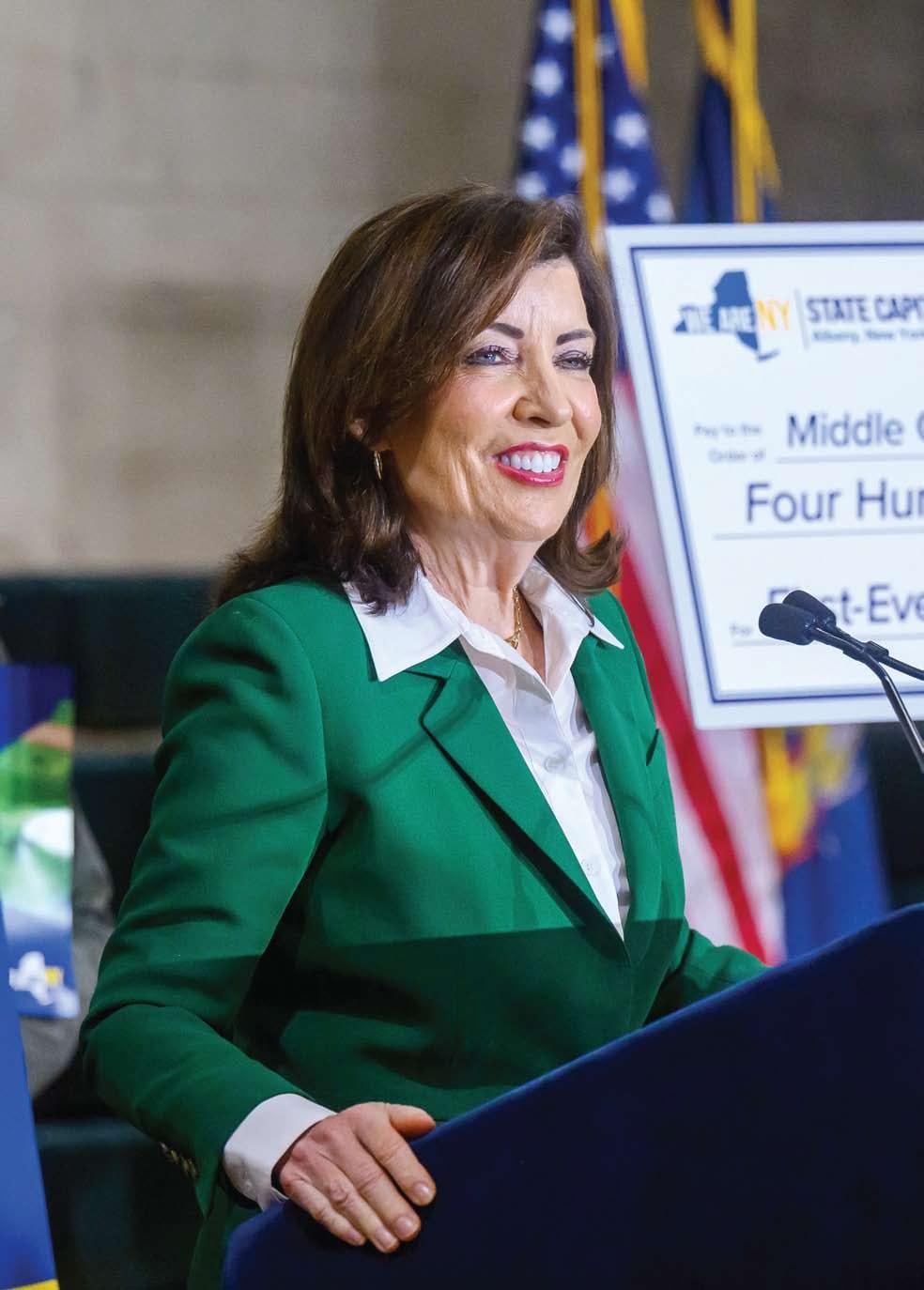
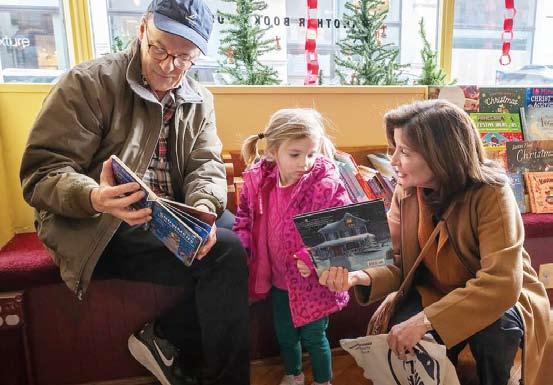
It is hard. So $400 back for families making less than $150,000 is to help them pay for those back-to-school products their kids need.
Some people just can’t get ahead, and I will continue fighting for our families because I’ve lived that experience.
Q: What other support systems are out there for New Yorkers who may be struggling financially?
A: Another big driver of costs of living is utility bills, so we have programs to help cover the costs of utility bills for families. For people who want to change their circumstances, better themselves, and be able to support their families more fully by getting an education, we’re covering the full cost of community college tuition for ages 25 to 55. I’m building more affordable housing to help open up opportunities for more people to have a safe roof over their heads. We have more to do, but I have been to projects from Gowanus up to Buffalo, and when I see a family a formerly
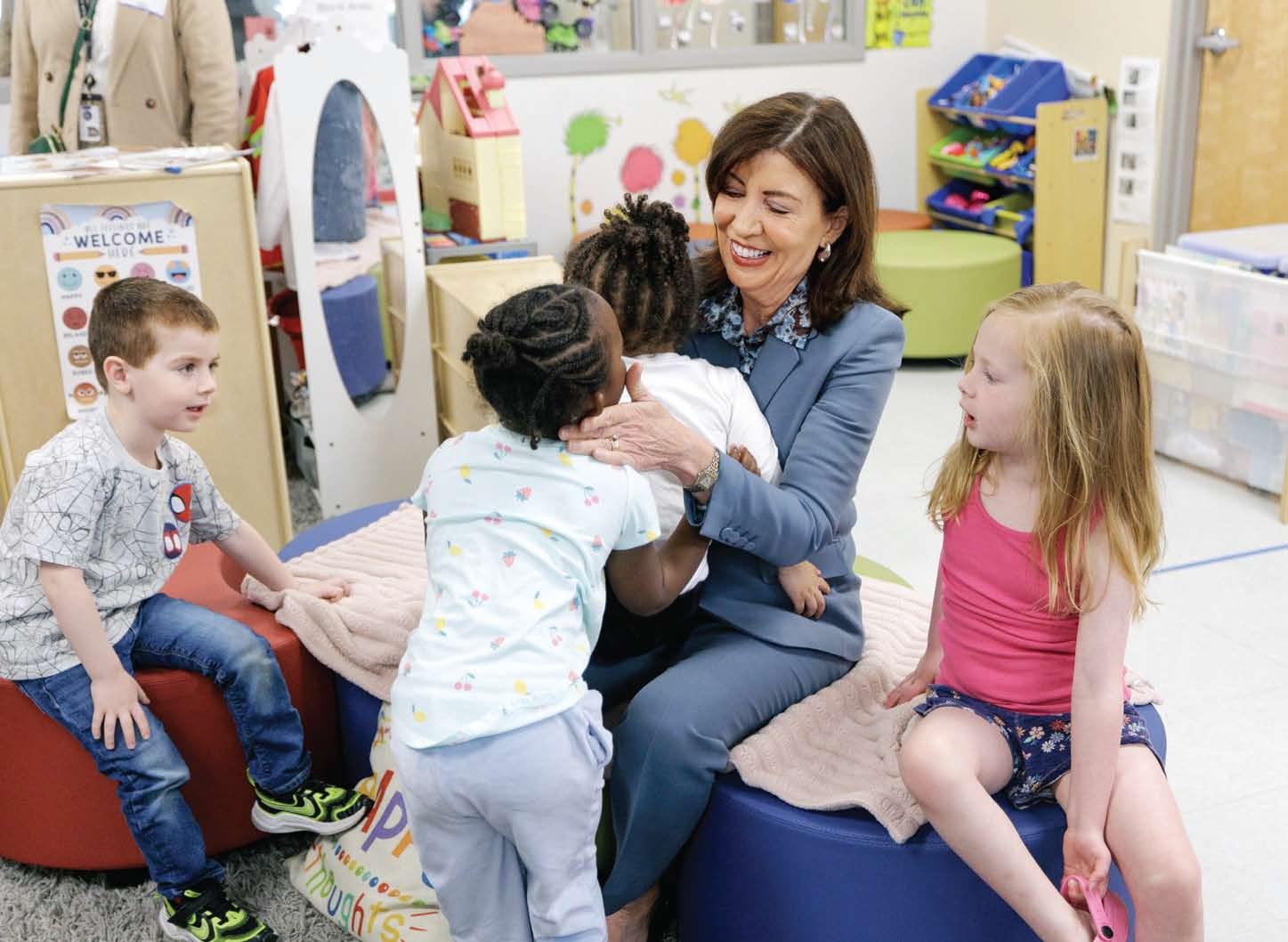
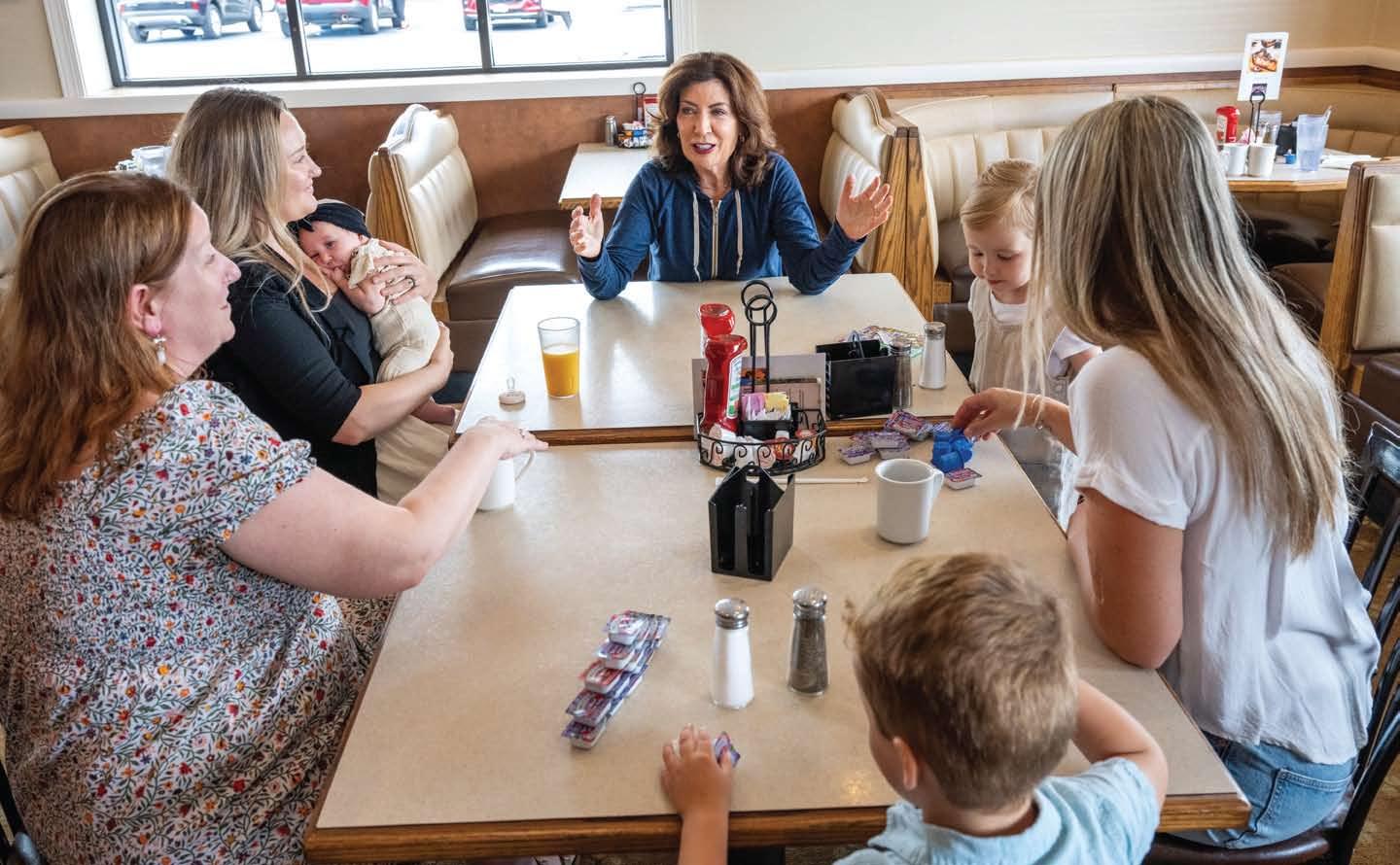
unhoused mom with her teenage kids opening up the door for the first time and hand them the key, the look on their face is just beautiful. We’re trying to hit all those pressure points.
Q: You recently announced a $300 million healthcare fund for New Yorkers. What kind of health concerns are you hoping to address?
A: Our hospitals and community health providers are the first places people go when they don’t have a primary care doctor. Every person has the right to healthcare. We’re making these investments to build up the infrastructure and cover those costs for our healthcare institutions.
At the same time, we have the Trump administration cutting Medicaid, which is going to devastate so many hospitals statewide. That’s what we’re fighting against healthcare workers losing their jobs and people having to survive without guaranteed healthcare.
That’s scary for a parent. Your child getting sick is your worst nightmare. This money will help stabilize our healthcare institutions and make sure they’re there when people need them.
Q: What can New York families expect from the Hochul administration for the remainder of this year and next?
A: Well, we’ll save that as a surprise for our next State of the State. We’re developing it now, but I assure you that public safety and affordability will continue to be the drivers of that. We’re not done yet. Families are still struggling, and that is my mission as someone who, again, can relate.
Specifically, I know how expensive childcare is, especially because of my own upbringing and my early years as a mom and a grandma. We’ve talked about universal childcare. We’ll be hearing more details about that and how it is going to play out. It’s critically important to give a lifeline to our parents.
by ShAr A Levine
idlewild trail walk
when : Fridays, 10 – 11 am, through Sept. 12
where: Idlewild Environmental Center, 222-02 149th Ave., Springfield Gardens
ageS: All what: Kick off your weekend and connect with nature on this family-friendly trail walk. want to go?: Free. eventbrite.com
rockaway dog parade
when: Sunday, Sept. 7, 2 – 4 pm
where: Shorefront Dog Run, Shorefront Parkway and Beach 90th St., Far Rockaway
ageS: All ages
what: This event is for the dogs and the people who love them! Live entertainment, adoptable dogs, raffles, and a costume parade where pups will strut their stuff!
want to go?: $5. flipcause. com/secure/cause_pdetails/ MjMzMjgy
noguchi museum Stroller tour
when : Wednesday, Sept. 10, 10:30 – 11:30 am
where: The Noguchi Museum, 9-01 33rd Road, LIC
ageS: 1 and younger
what: Grown-ups will learn about Isamu Noguchi’s life and art while babies are engaged in activities. Then, connect with other families, listen to music, and read children’s books.
want to go?: $16. 718-204–7088, noguchi.org
September k ids Zone
when : Saturday, Sept. 13, 11 am – 12 pm where: Queens Center, 90-15 Queens Blvd., Elmhurst ageS: 3 – 12
what: Just in time for the new season, kids will create a
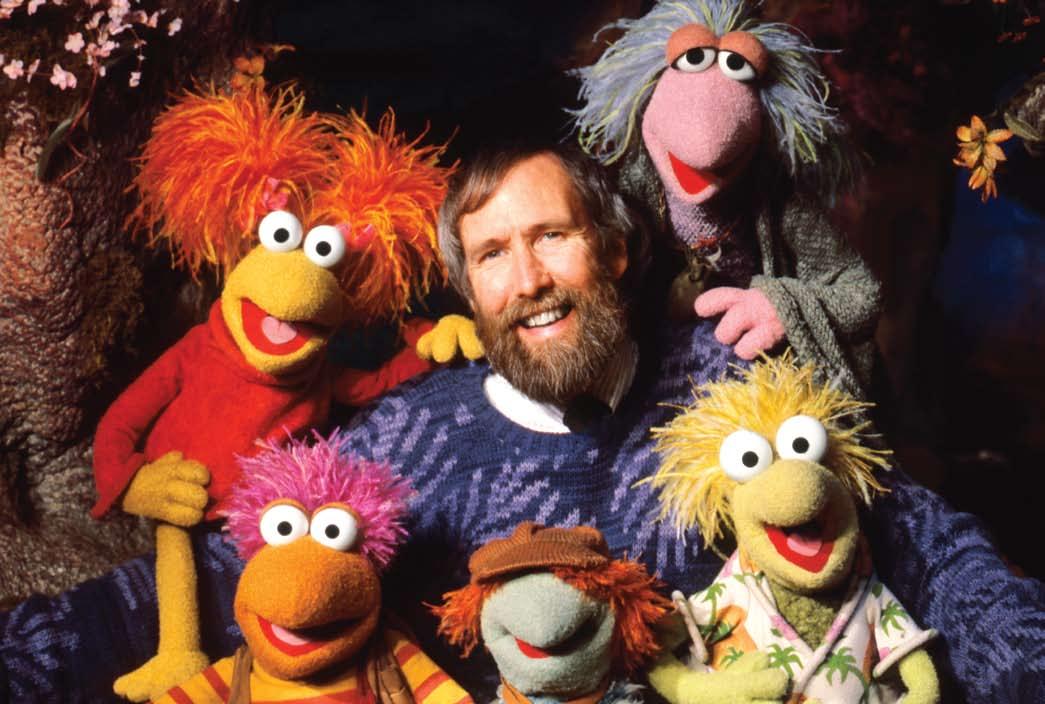
football tic-tac-toe board with helmet and megaphone pieces. want to go?: Free. 718-592–3900, shopqueenscenter.com
tkiya new year Jam
when : Sunday, Sept. 14, 10:45 am – 12 pm where: Commonpoint Queens, 67-09 108th St., Forest Hills
ageS: 8 and under what: This pre-Jewish New Year and school year kickoff celebration features crafts, music, movement, bubbles, puppets, and more! want to go?: Free. tkiya.org
Jim henson birthday celebration 2025
when : Sept. 20-21, Saturday and Sunday, 11 am – 6 pm where: Museum of the Moving Image, 36-01 35th Ave., Astoria
ageS: 6 and older
what: Commemorate Muppets creator Jim Henson with a weekend of activities including special guests, a birthday sing-along, and more. want to go?: $10–$20. 718777–6800, movingimage.org
kew gardens community arts day 2025
when : Saturday, Sept. 20, 12 – 5 pm where: Austin St., Lefferts Blvd., 83 Ave., Kew Gardens ageS: All
what: Celebrate local artists through music, art experiences, and Sidewalk Chalk Festival. want to go?: Free. kewgardensarts.com
long island family day
WHEN: Sunday, Sept. 21, 12 – 3 pm
where: Cradle of Aviation Museum, Charles Lindbergh Blvd., Garden City
ageS: All
what: Discover amazing family resources while enjoying tons of interactive games and activities, exciting raffles, awesome giveaways, and more! want to go?: Free. 516-572–4066, eventbrite.com
cornfest+
when : Sept. 27-28, Saturday and Sunday, 11 am – 5 pm where: Alley Pond Park, 7920 Winchester Blvd, Queens Village ageS: All
what: Kick off fall fun when you play in a corn kernel box, bite into an ear of sweet roasted corn, meet some furry friends, and more. want to go?: $14 greenmeadowsfarmny.com
42nd annual Queens county agricultural fair when : Sept. 27- 28, Saturday
and Sunday, 11 am – 6 pm where: Queens County Farm Museum, 73-50 Little Neck Parkway, Floral Park ageS: All
what: Enjoy pie eating and corn husking contests, hayrides, carnival rides, midway games, live music, and more! want to go?: $10-$34. queensfarm.org
build a birdfeeder
when : Sunday, Sept. 28, 11 am – 12 pm
where: Juniper North Playground in Juniper Valley Park, 78th St. and Juniper Blvd. South, Middle Village ageS: All
what: Learn about birds in your neighborhood and what they like to eat, then create your own decomposable bird feeder.
want to go?: Free. nycgovparks.org
the feast of San gennaro when : Sept. 11-21, Daily. See website for complete schedule. where: Mulberry St., Little Italy ageS: All
what: This iconic event stretches throughout 11 blocks of Little Italy, celebrating Italian culture and traditions. want to go?: Free. sangennaronyc.org
56th annual african american day parade when : Sunday, Sept. 21, 12:30 – 6 pm where: 111th St. -136th St. at Adam Clayton Powell Jr. Blvd.,

Harlem ageS: All
what: Celebrate African American culture at this festive parade featuring marching bands, majestic floats, community organizations, celebrities, and more!
want to go?: Free. africanamericandayparade.org
gabby’s dollhouse meowseum discover day’s takeover
when : Sept. 27-28, Saturday and Sunday, 10 am – 5 pm where: Children’s Museum of Manhattan, 212 West 83rd St., Upper West Side ageS: 3 – 8 what: Meet Gabby, enjoy giveaways, photo ops, and themed activities throughout the museum.
want to go?: Included with admission: $14-$17. 646-765–4773, cmom.org
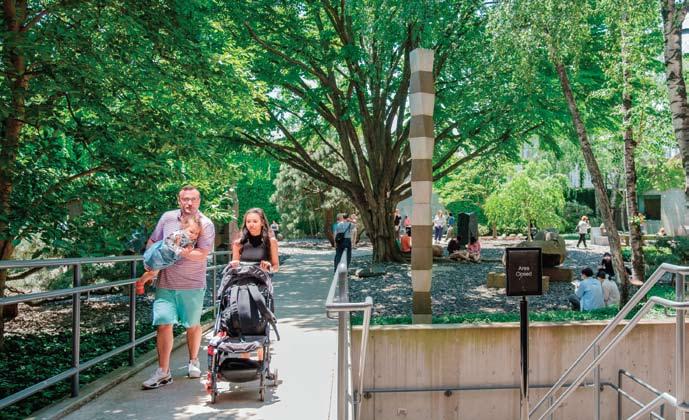
tim burton’s the nightmare before christmas light trail when : Sept. 25-Nov. 30, Wednesdays – Sundays, see website for schedule where: New York Botanical Garden, 2900 Southern Blvd., Jerome Park ageS: All what: Join Jack Skellington, for a frightfully fun frolic through the world of the beloved film, now featuring even more of your favorite characters, scenes, and songs. want to go?: Tickets start at $33. 718-817–8700, thenightmarebeforechristmaslighttrail.com
harvest glow
when : Sept. 25-Oct. 31, Thursdays – Sundays, 7 pm, 8 pm, and 8:30 pm where: Bronx Zoo, 2300 Southern Blvd., Crotona ageS: All what: Follow an animalthemed illuminated Jack O’ Lantern Trail, explore Dinosaur Safari at night, and enjoy live pumpkin carving, Wildlife Theater, new games, and more. want to go?: $35; $25 ages 3-12. bronxzoo.com
brooklyn dribble
when : Sunday, Sept. 7, 10 am – 3 pm
where: Brooklyn Bridge Park, Pier 6 + 2, 360 Furman St., DUMBO ageS: All what: See performances by Ellie the Elephant, the Timeless Torches, and more, along with food trucks, lawn games, face painting, and more. want to go?: Free. thebrooklyndribble.splashthat. com
brooklyn book festival children’s day when : Saturday, Sept. 20, 10 am – 4 pm where: Brooklyn Borough Hall, 209 Joralemon St., Brooklyn Heights ageS: 2 – 11
what: Young book lovers can expect an exciting lineup of authors, illustrators, performers, and activities. want to go?: Free. brooklynbookfestival.org
long island family day when : Sunday, Sept. 21, 12 – 3 pm where: Cradle of Aviation Museum, Charles Lindbergh Blvd., Garden City ageS: All
what: Discover amazing family resources while enjoying tons of interactive games and activities, exciting raffles, awesome giveaways, and more! want to go?: Free. 516-572–4066, eventbrite.com
By Shara Levine
You may have sent your grandmother flowers or a heartfelt card for her birthday, but New York City-based Grammy Award winner Joanie Leeds wrote and recorded an entire album, “Ageless: 100 Years Young,” in time for her Bubby’s milestone 100th birthday.
“Ageless” is Joanie’s 12th children’s studio album. It is inspired by her grandmother, Sylvia Furshman Nusinov, with tunes that will encourage listeners to, just like Bubby, face the world with optimism, be curious, ask questions, and enjoy your favorite sweets! Adding even more nachas (Yiddish for “pride”), Joanie’s 10-year-old daughter, Joya, is heavily featured on the album, including on the song “A, You’re Adorable,” where she sings a remake of the Perry Como and The Fontane Sisters classic as an ode to Sylvia and her husband Sam’s 74-year-long marriage.
Although all of Joanie’s albums are personal and make important topics accessible through her music on records such as “Freadom: Songs Inspired by Banned Children’s Books” and “All the Ladies,” “Ageless: 100 Years Young,” is “a piece of art that will live on in my family for generations to come,” Joanie shares.
Joanie was inspired to write Ageless while performing at a show in South Florida a few years ago. She interviewed her grandmother in hopes of learning more about her life to be able to write this special album.
“It’s funny because, as a songwriter, there is a time before the songs are written when it’s simply an idea, and then everything after. Consumers only hear the finished product, but sometimes the process is even more fun. As a songwriter who loves a theme, I was fixated on how to tell her story properly. It was meaningful to research and learn more about Bubby in the process through letters, pictures, and storytelling!” says Joanie.
The opening track, “Don’t Worry,” is one of Bubby’s favorites on the album and is based on one of her famous lines: “Never
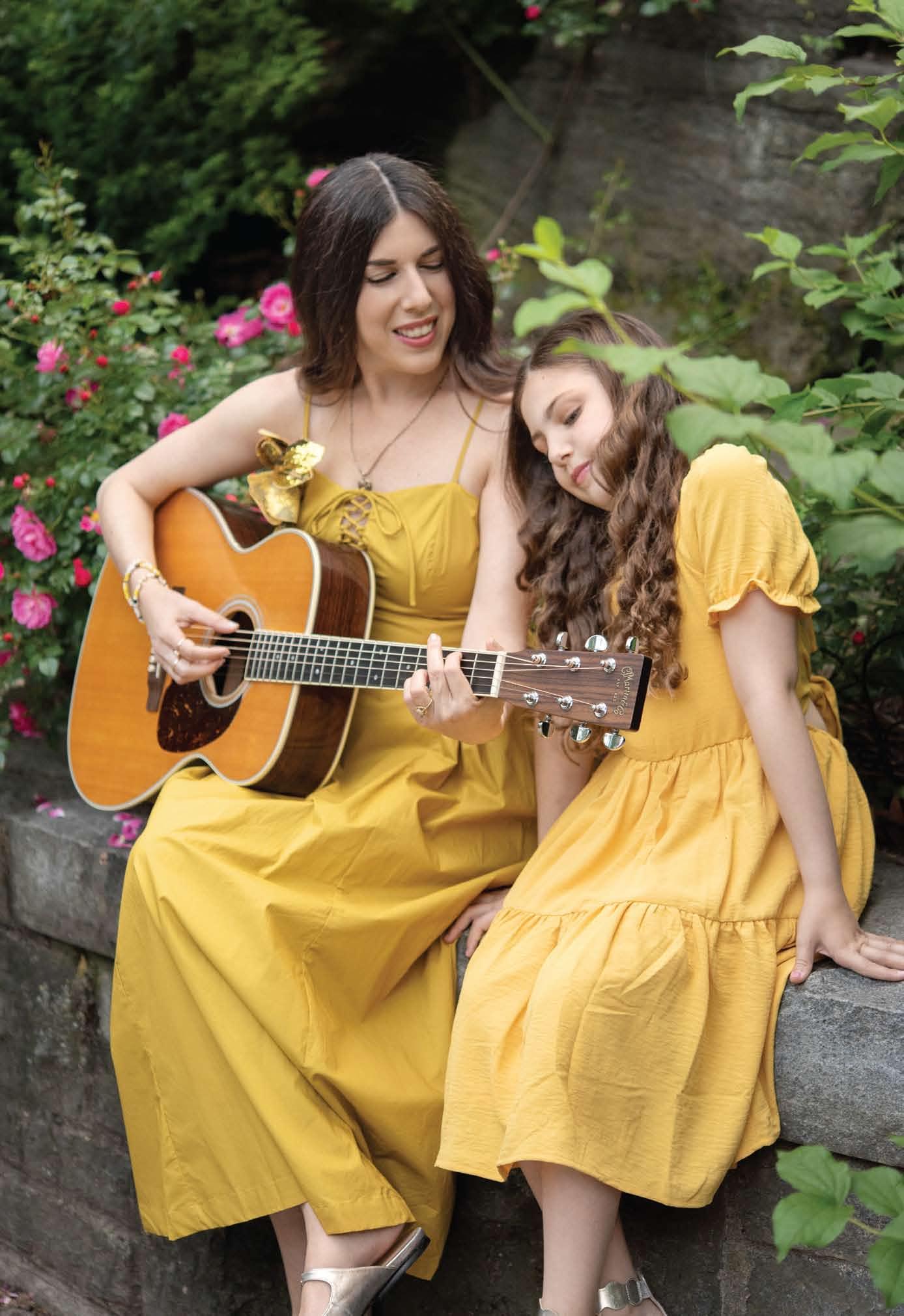
worry worry till worry worries you.” The song reminds little listeners (and grown-ups, too!) to let go of anxieties and be in the moment, weaving in additional quotes from Oprah and Jon Kabat-Zinn.
We learn even more about Bubby on “Genealogy,” a powerful song following Sylvia’s quest to find relatives lost during the Holocaust. Featuring Michael Napolitano on percussion, we learn the lengths she had to go through to find surviving members of her family on this folk-rock tribute. Joanie’s poetic chorus includes the line “leaves and branches roots that make me,” driving home the importance of knowing where we come from. Through the song, we also learn that Syvia’s search led her to write a genealogical workbook to help other people find their roots through research techniques she applied herself.
If you don’t call your grandmother “Bubby,” that’s okay! I’m sure whatever you call her is included on the track, “Bubby,”
which ticks off the myriad ways we refer to our grandmothers across different cultures worldwide. This song will have your little ones dancing around the living room while they’re reminded of these special bonds no matter if they are grandma , abuela , or yaya !
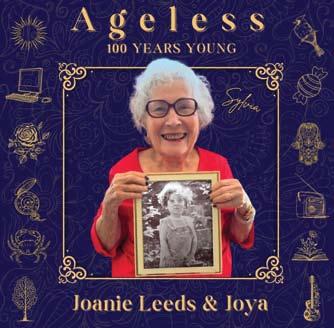
“Ageless: 100 Years Young,” was released last month, just in time for Grandparents’ Day on September 7. The album is full of sweet, sentimental tunes you’ll want to share with your children and their grandmothers. The message of love and family shines through in each track, making it a must-add to your music collection. Learn more about Joanie’s other albums and tour dates by visiting joanieleeds.com and following @joanieleeds on Instagram.


